 Sign in
Sign inEducation
EdSurge Podcast
A weekly podcast about the future of learning. Join host Jeff Young and other EdSurge reporters as they sit down with educators, innovators and scholars for frank and in-depth conversations.
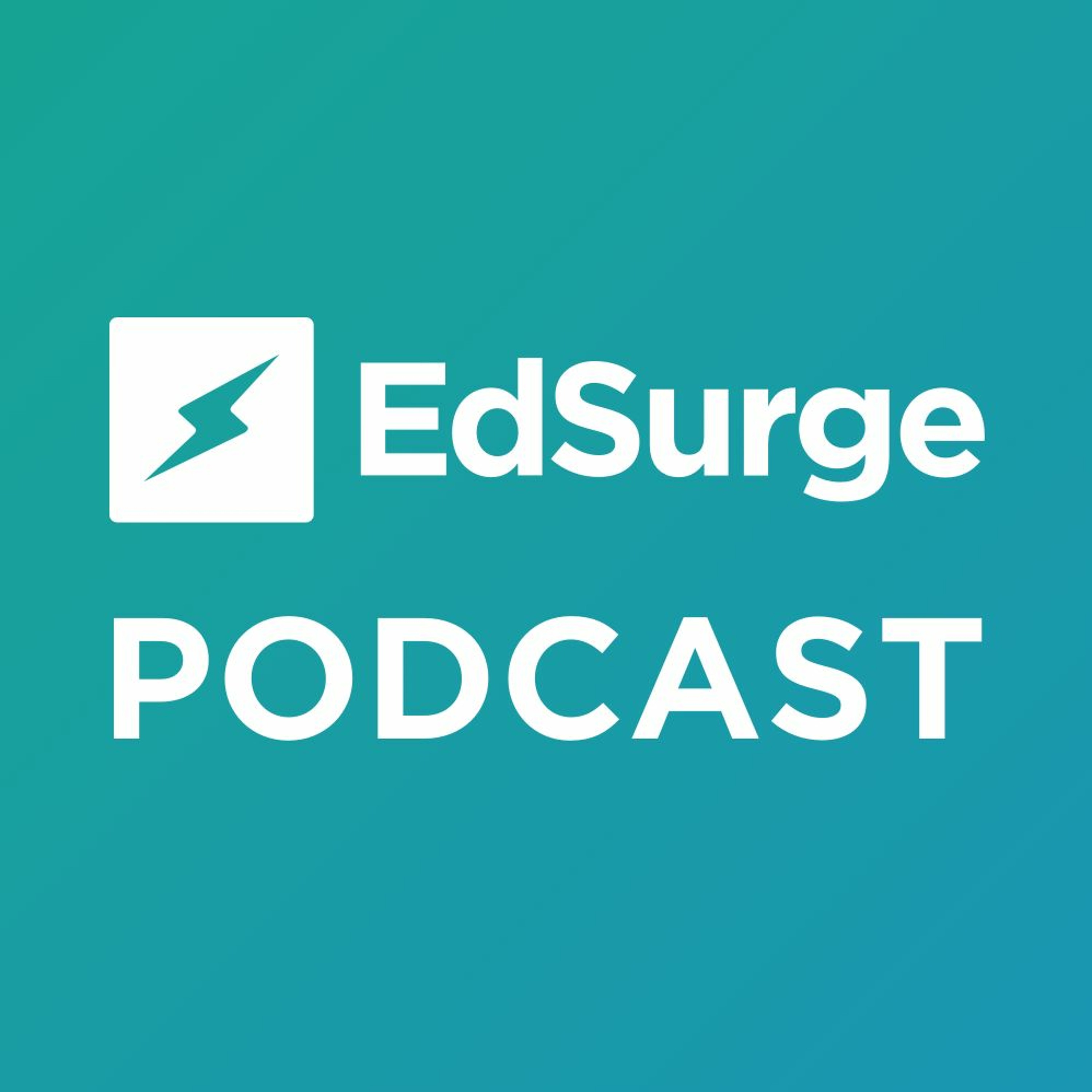
How ‘Dialogue’ Can Create Empathy in a Divided Classroom
In many classrooms these days, student discussion can grow so heated that passion threatens to overwhelm productive conversation. And in today’s highly polarized atmosphere, when a comment taken out of context can go viral on social media, the consequences of an out-of-control conversation can be severe. But there’s another option. This week on the podcast, we’re learning about “dialogue,” a type of mediated discussion that may help students and educators tackle touchy topics more productively.
25:3618/02/2020

Why Talking About ‘Screen Time’ Is the Wrong Conversation
Today we’re diving into this issue of screen time, with a guest who for years has tracked research about the impact of screen media on children and young people. She’s Lisa Guernsey, director of the Teaching, Learning, and Tech program at New America. She says she has a better way to think about regulating tech, including a model of how educators and librarians can become better mentors for students and parents.
26:3811/02/2020

A Case For Educational Innovation Without ‘Disruption’
There’s a budding field called the science of teaching and learning, where scholars are figuring out what works when it comes to educating students. But there’s a challenge -- of getting those findings to folks at the front of the classroom, you know, to make sure no one is reading their PowerPoints aloud, or using techniques that don’t connect with students. A new book focuses on how to move these “science of teaching” findings into actual teaching.
29:3704/02/2020

Students Today Are Learning All The Time. Can Schools Keep Up?
Not so long ago, students did most of their learning at school, and maybe while doing homework or during trips to the museum. Now, learning—like the internet—is everywhere thanks to the ubiquity of smartphones and chromebooks. Julie Evans, the CEO of education nonprofit Project Tomorrow, spends a lot of time measuring how young people learn and interact with others. As it turns out, what students say they want from their school experience, or about learning in general, can be rather illuminating for those charged with teaching them.
18:1928/01/2020

How Stretching to Pay for College Is Altering Middle Class Life
In an usual study on student debt, NYU anthropologist Caitlin Zaloom sat down with more than 160 people—students and parents—and got them to open up their financial books and talk about the toll of paying for college. We talked with Zaloom about what surprised her most from her research, what she thinks should be done, and how she has changed her thinking about saving for college for her own young children.
25:3921/01/2020
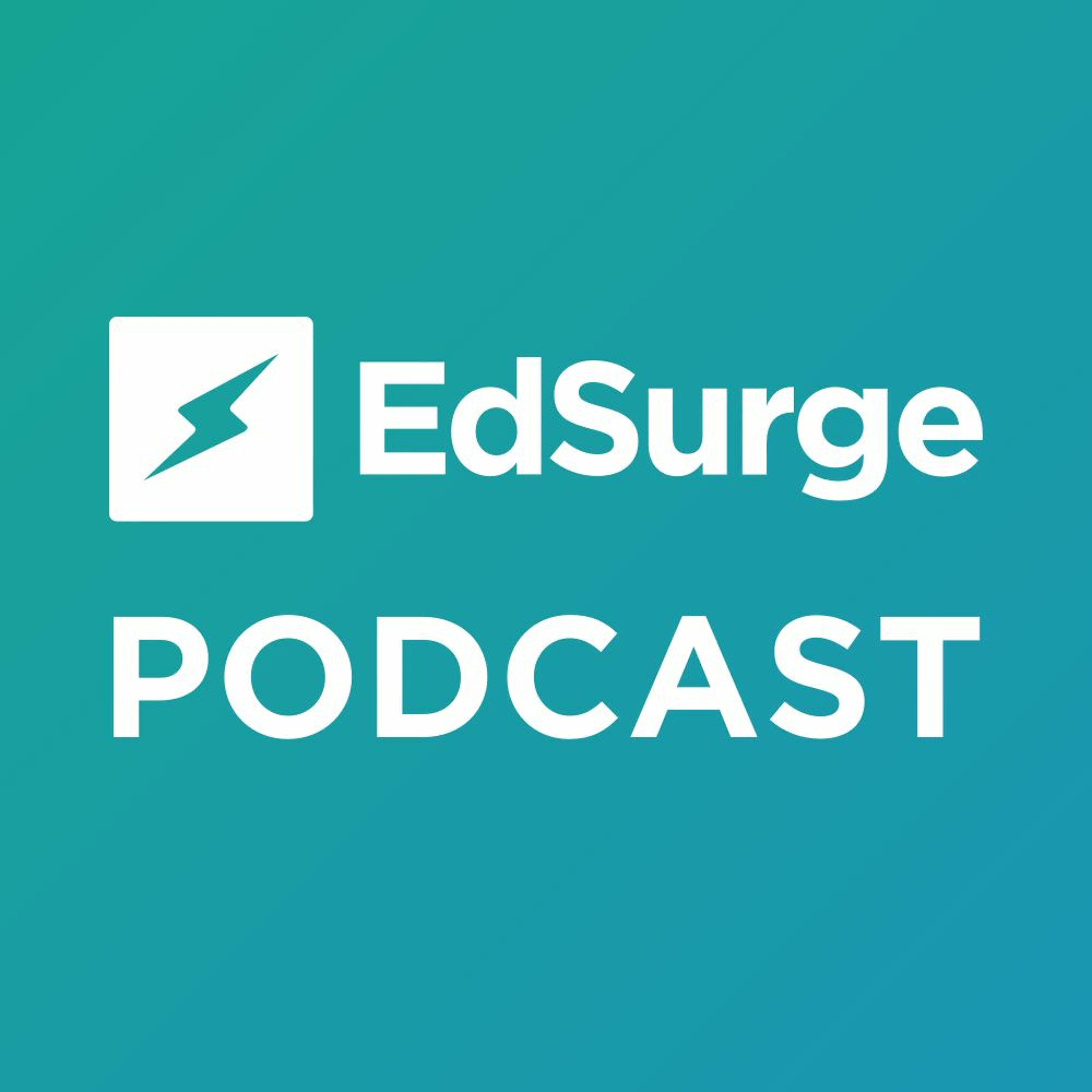
Can Teaching 'Hope' Revive Democracy?
A new book argues that hope is something that can be taught, and that it is the key to countering today's heightened polarization and cynicism. We sat down with the author, Sarah Stitzlein, a professor of education at the University of Cincinnati, to hear how her own attempts to teach hope have made an impact, and her advice on how to approach the 2020 U.S. presidential election.
22:4114/01/2020
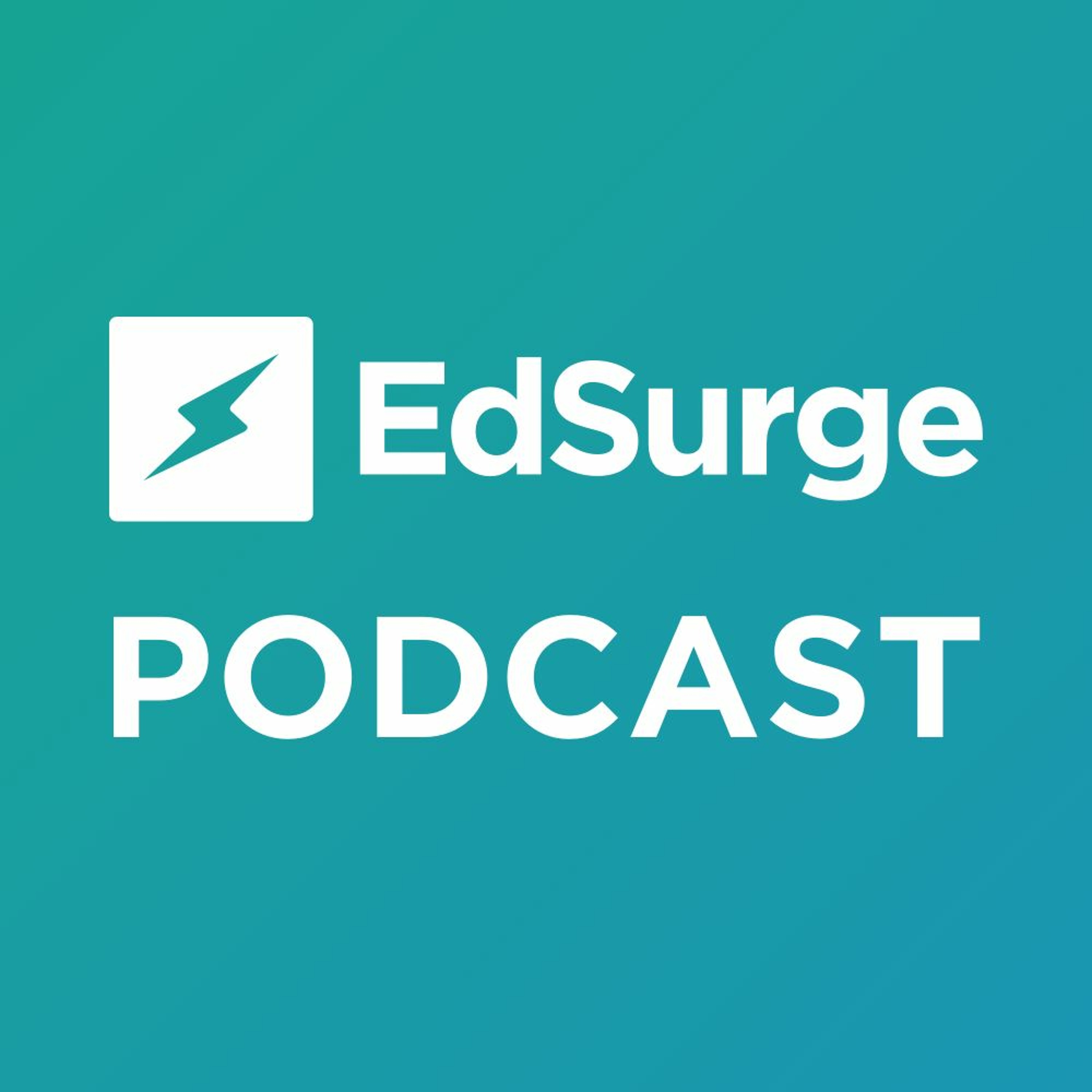
When a Homecoming Video Raises Questions About Campus Diversity
A two-minute video made by students at the University of Wisconsin at Madison was meant to promote school spirit and campus unity during homecoming festivities a couple months ago. But some students had a very different reaction as they watched scene after scene of students working and playing around campus, where almost every one of the students shown was white. It's a telling example of issues going on around the country when it comes diversity on campuses—and the struggle to create a climate where diverse populations feel at home on campuses.
22:1808/01/2020

Encore Episode: How Far Parents Will Go to Save on College
Parents are giving up custody of their kids to get need-based college financial aid. That was a headline in August in ProPublica Illinois, and it got people talking once again about the madness around college admissions. In comments on the ProPublica article and in other online forums, though, plenty of people chimed in expressing sympathy for these Chicago-area parents, calling their move a clever solution to an overwhelming challenge facing their children. To these commenters, the real problem is the high cost of college and what they see as unfair rules around how much parents are expected to contribute.
16:4331/12/2019
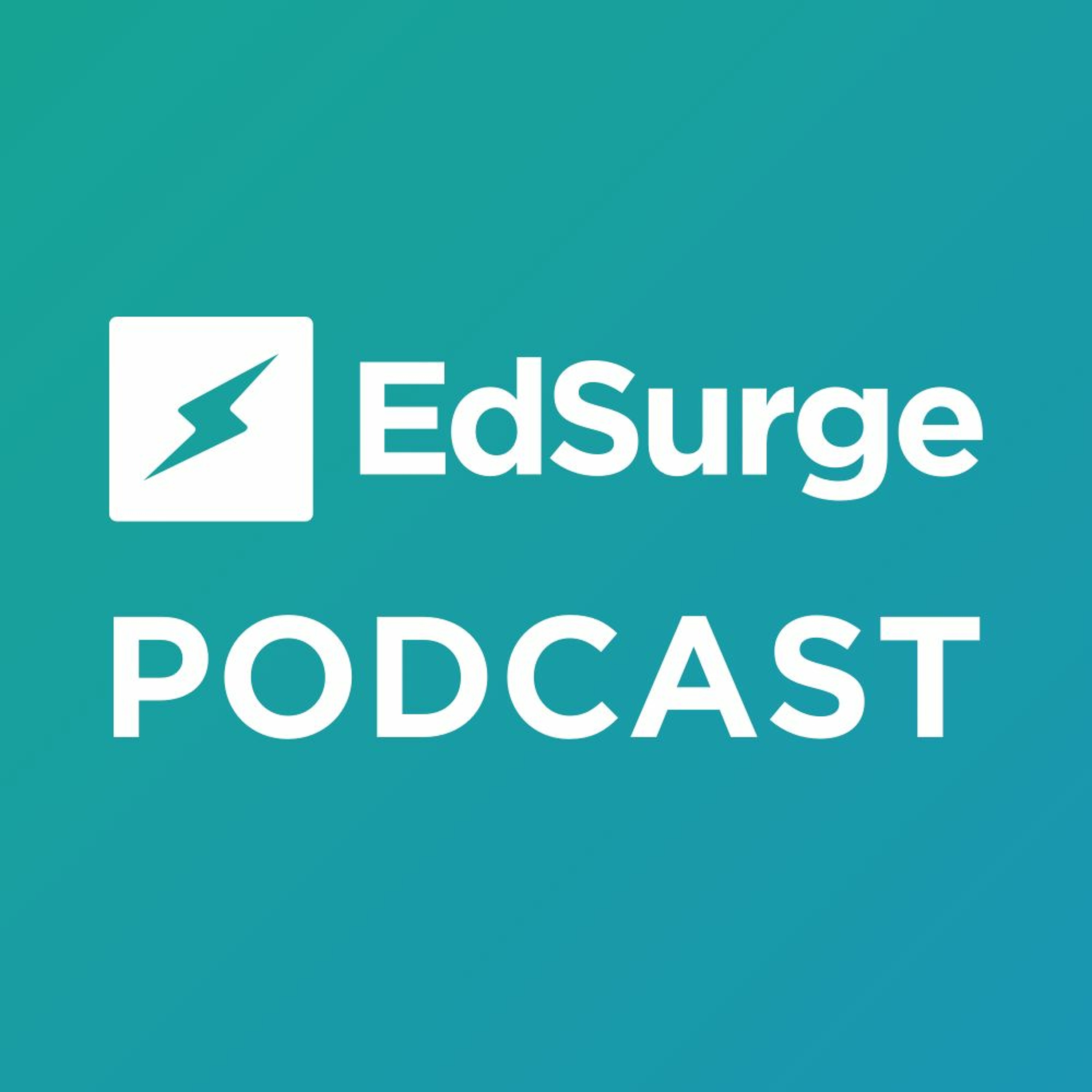
Teaching Students How to Live a Good Life
When people think of education, they often picture content knowledge in subjects like reading, writing or arithmetic. But there’s a growing interest in bigger questions—like whether schools, colleges or job-training programs teach the social and emotional skills people need to make it in today’s complex world. For our final podcast of the year, we get philosophical, looking at ideas of what a good life looks like.
16:0724/12/2019
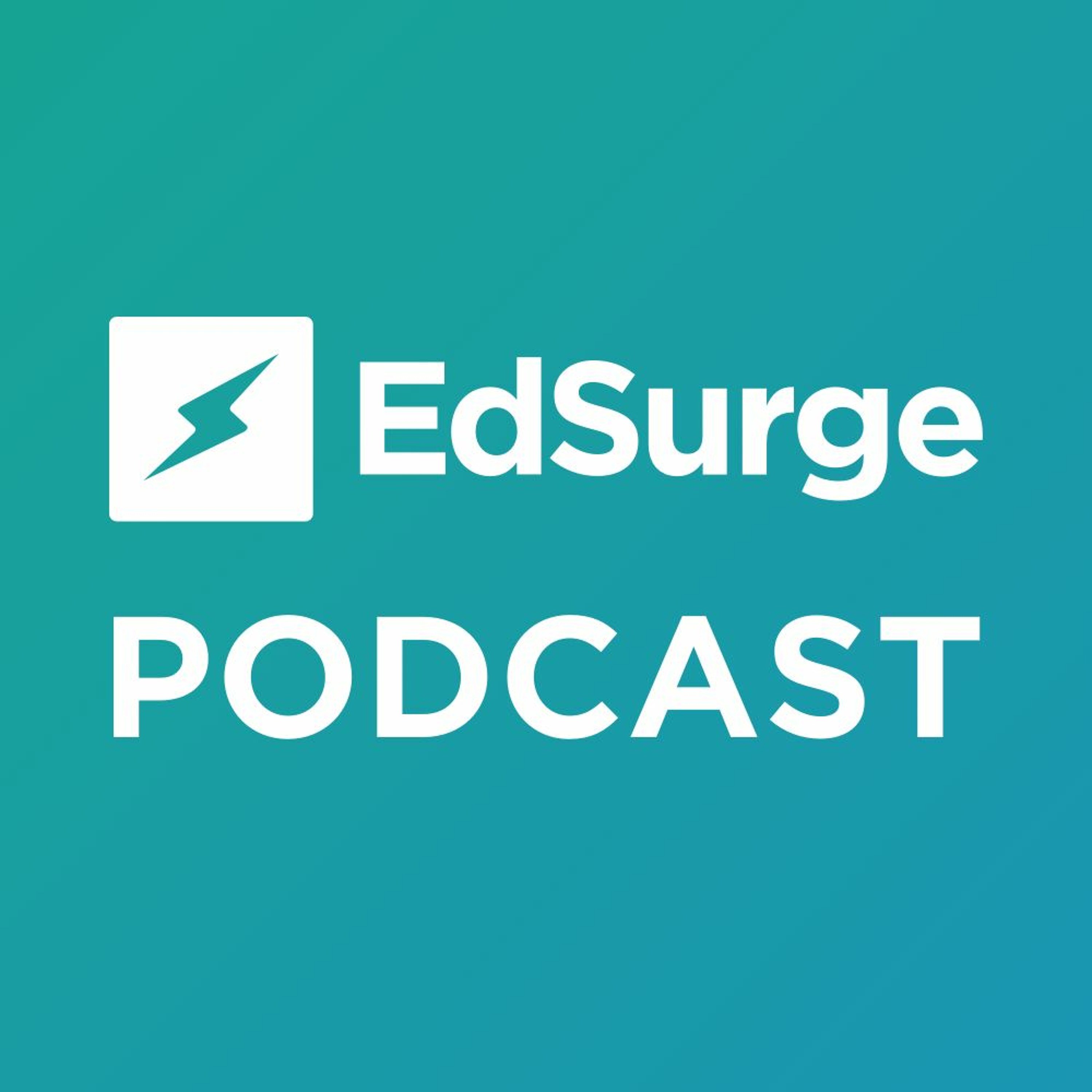
Why Music Education Is More Than Learning How to Play
If you were fortunate enough to have music education in school, what were those classes like? Musicians and music educators alike say that learning music is so much more than just playing an instrument, or learning about your favorite artists. It’s a window into other disciplines and life skills, and teaches you how to learn and get along.
17:5217/12/2019
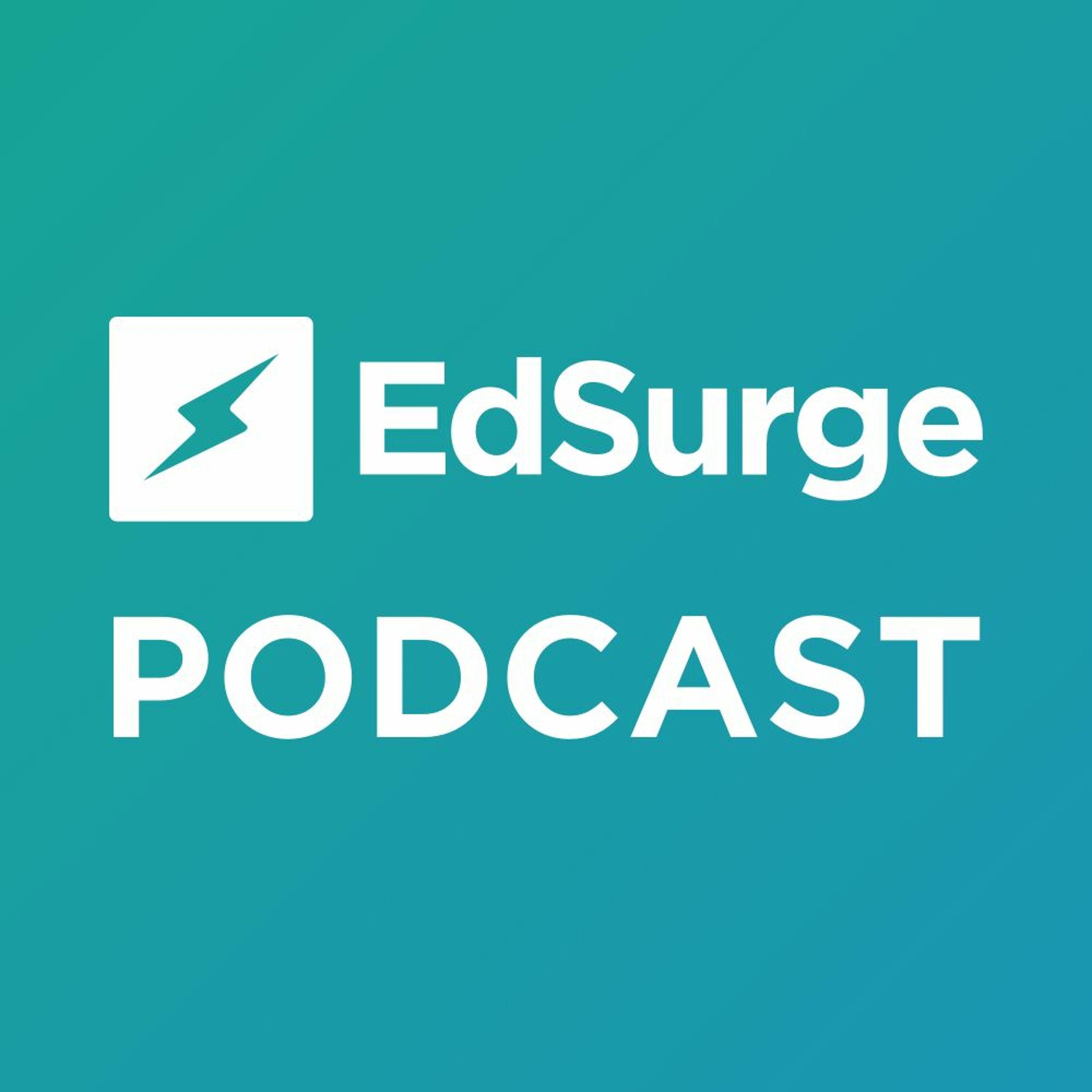
A Podcast for Every Discipline? The Rise of Educational Audio
It's well-known that podcasting is huge these days. But you might not realize how many educational podcasts are out there. By educational, we mean shows that promise to teach listeners some super-focused topic, like a specific period of history or an academic discipline. Today we’re digging into this growing subculture of educational podcasting, and look at how educators are using these podcasts in formal classes, in ways that make a unique contribution to their teaching.
21:3210/12/2019
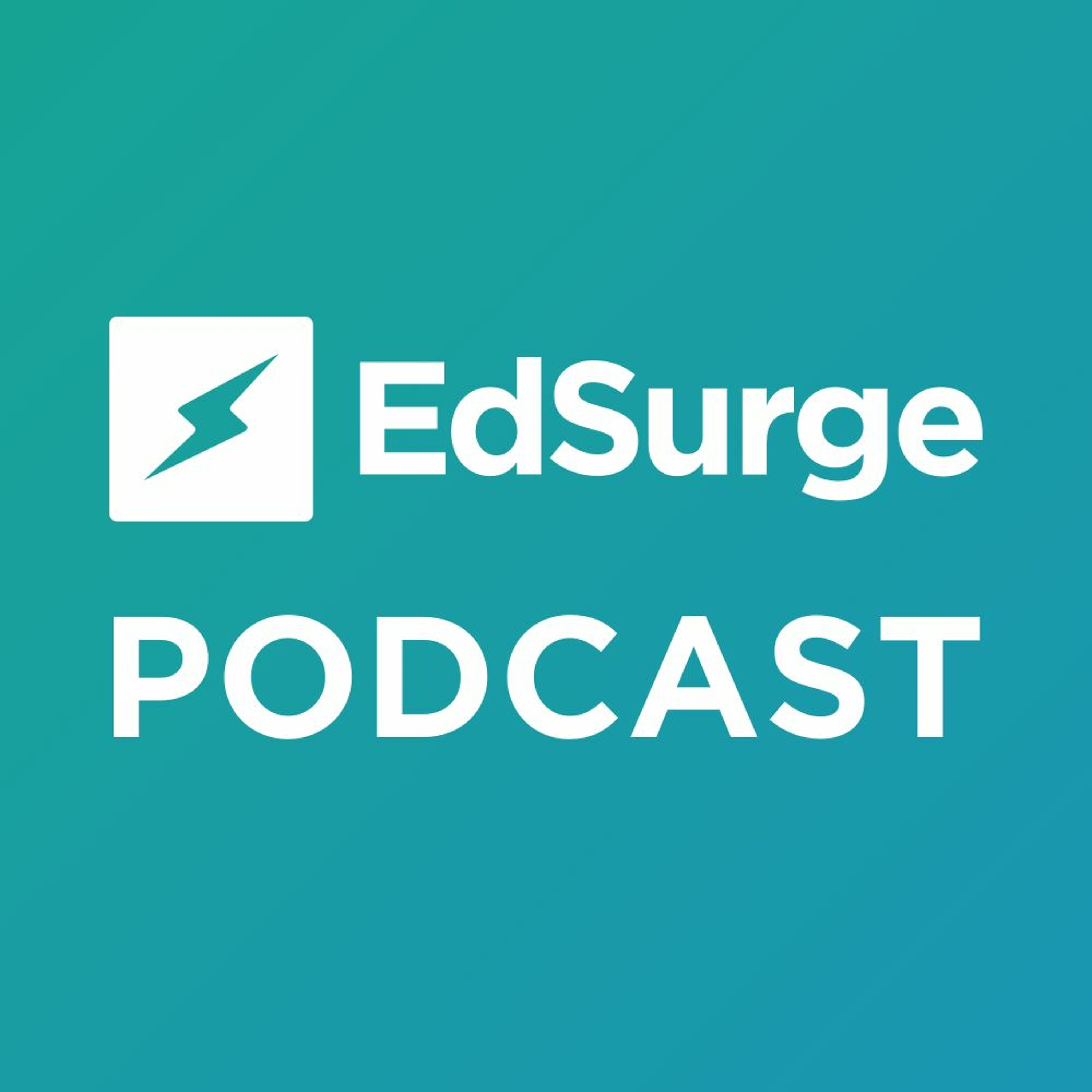
When College Becomes a Benefit of Employment
These days working at a fast-food restaurant or other service-industry job often comes with a new benefit—a college education. Well, more employers, including big-names like Starbucks and McDonalds, are offering tuition-assistance to workers, or even letting them take courses for free. This is part two of our two-part series asking how well these education-as-a-benefit programs work? And who do they work for?
29:5303/12/2019
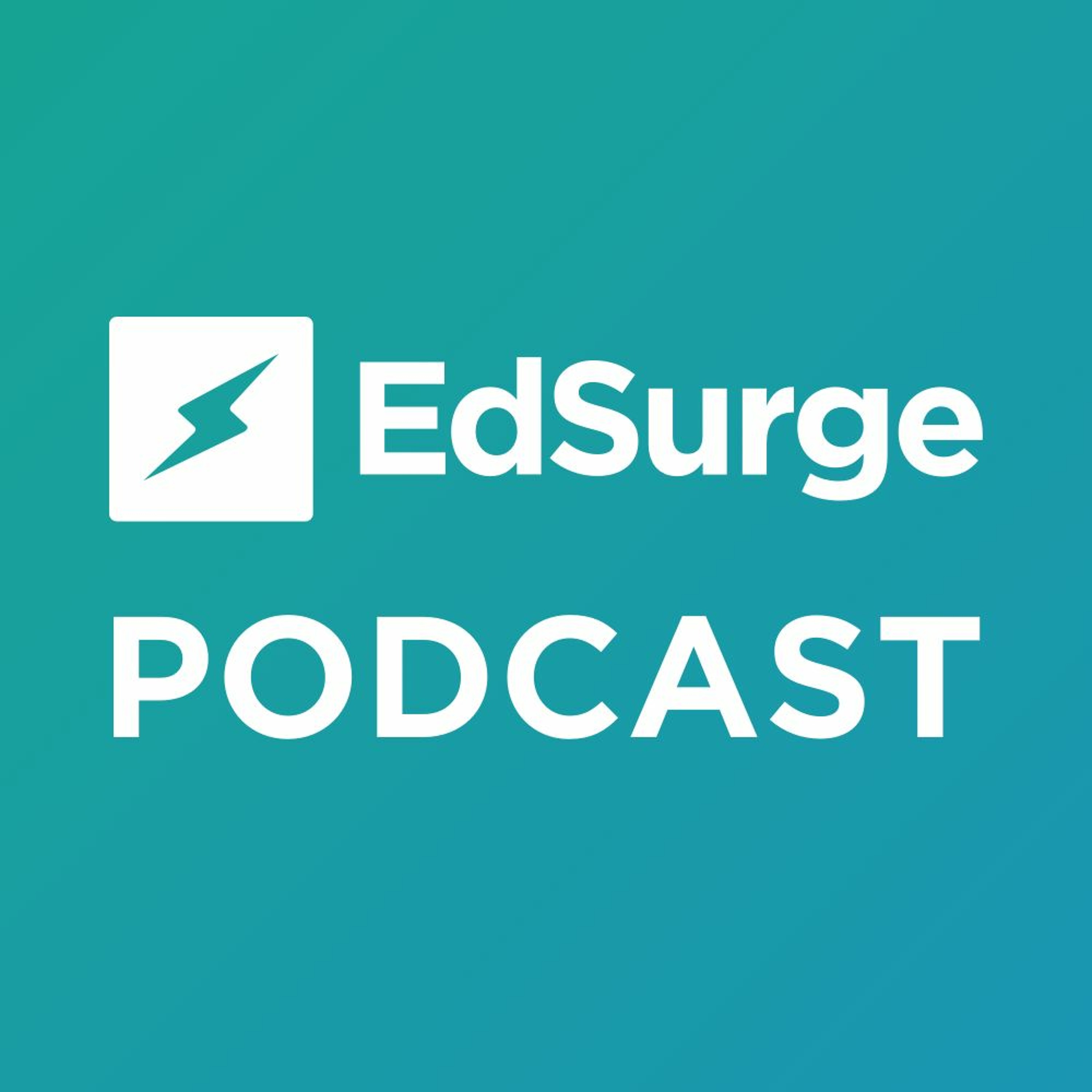
How Algorithms are Changing Low-Wage Work
A growing number of fast-food restaurants have added free or heavily-subsidized college education options for their workers. But how well do these new benefits work in practice? And what kinds of people do they best serve? In the first of a two-part series, we look at how tech is changing low-wage work—and what one author sees as obstacles to these new education-as-a-benefit programs.
30:3926/11/2019
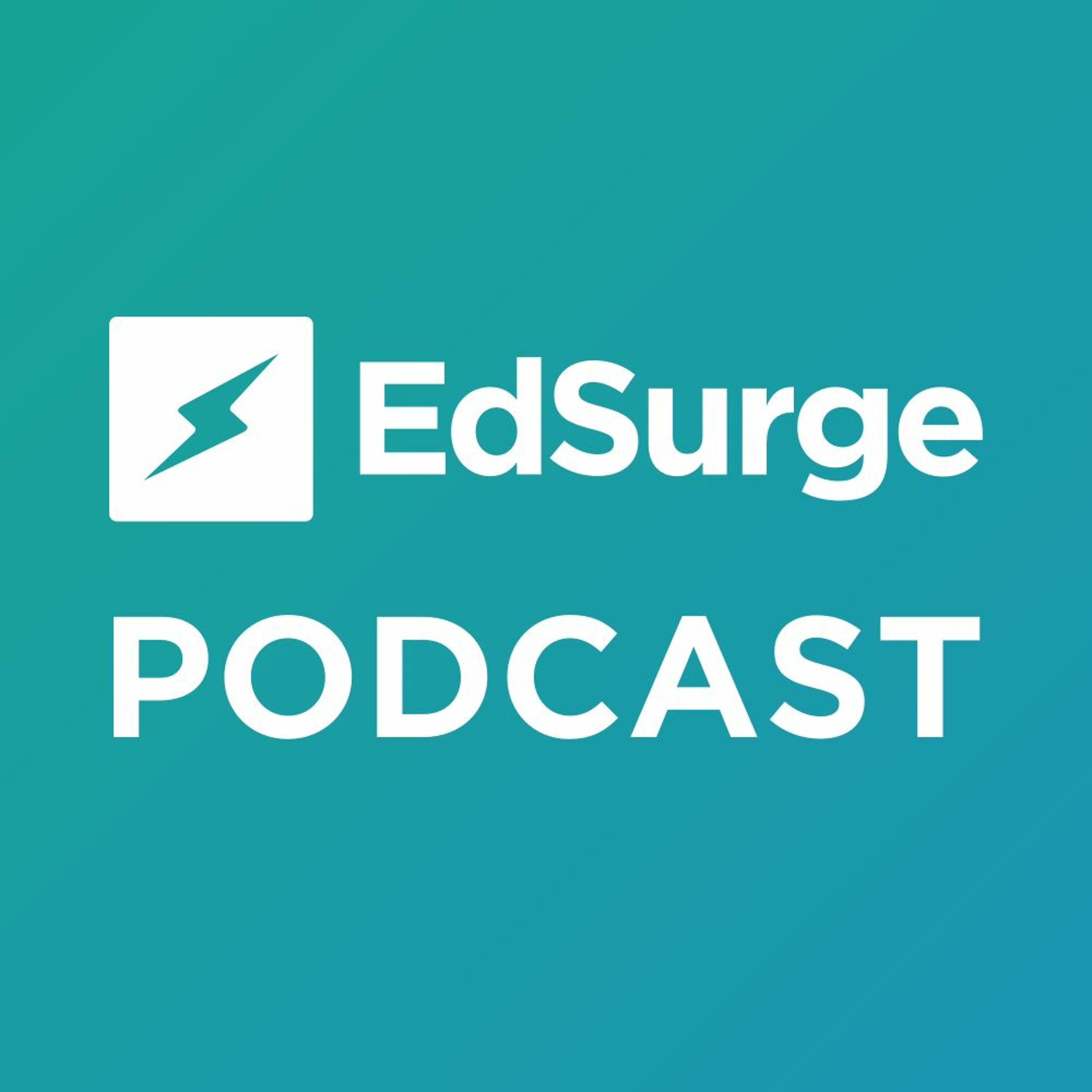
Many Frustrated Teachers Say It’s Not Burnout—It’s Demoralization
A few years ago, after more two decades in the classroom, Chrissy Romano-Arribito began to experience something that may sound familiar to a lot of teachers: burnout. Or not burnout, exactly, but demoralization. Experts like Bowdoin College education chair Doris Santoro, author of the book “Demoralized,” note that as systemic pressure, such as top-down initiatives or punitive evaluation systems, crowd out teacher autonomy, they feel they can no longer tap into what “makes their work morally good.”
17:5319/11/2019
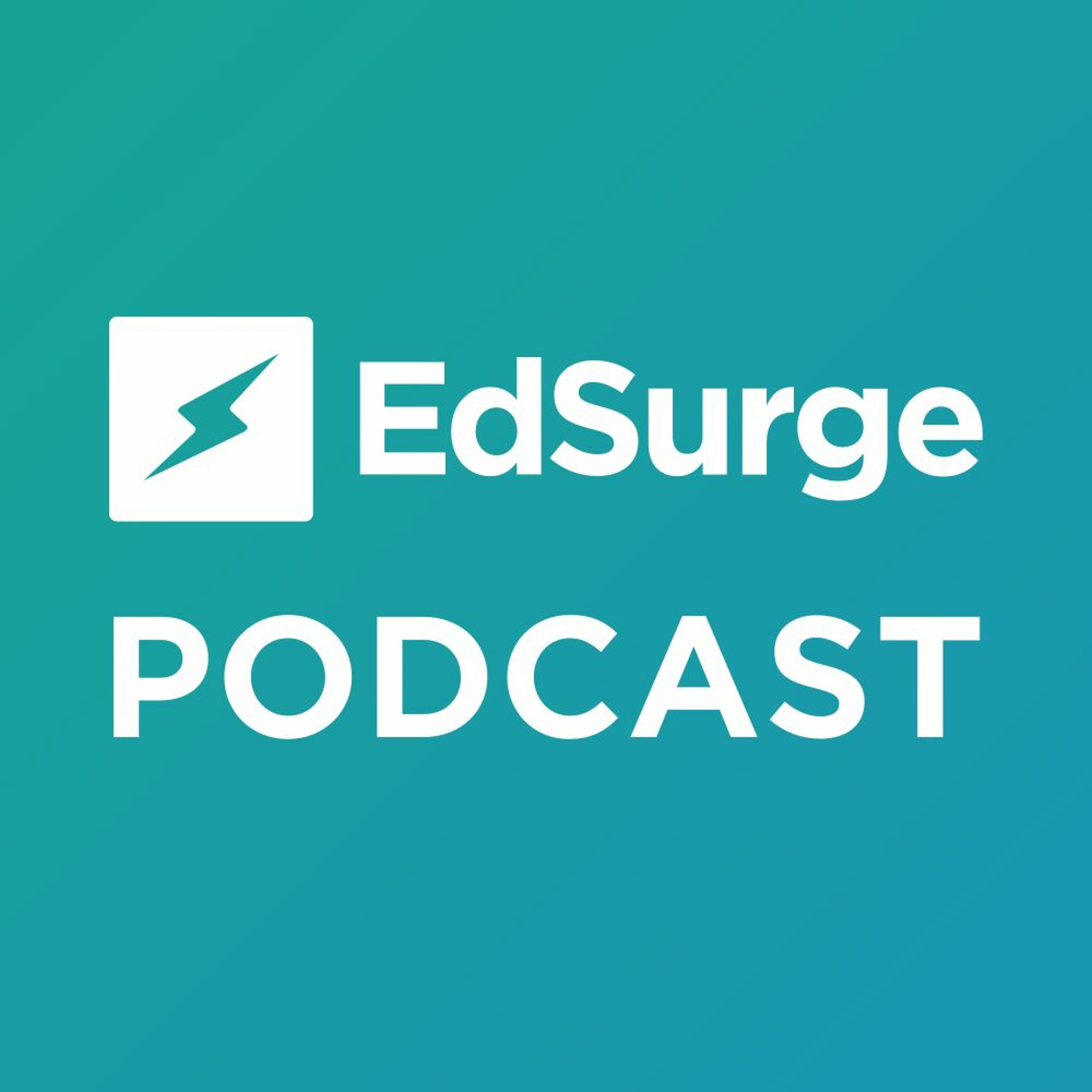
The Latest Innovation in Student Retention at Colleges: 'Food Scholarships'
College kids have a reputation for seeking out free food, and that's why any student organizer knows that ordering pizza is a good way to lure folks to a meeting. But for many students, hunger is a more serious problem. Many campus leaders are trying new ways to address the problem of 'food insecurity' on campus—which can impact professors as well as students.
18:4712/11/2019
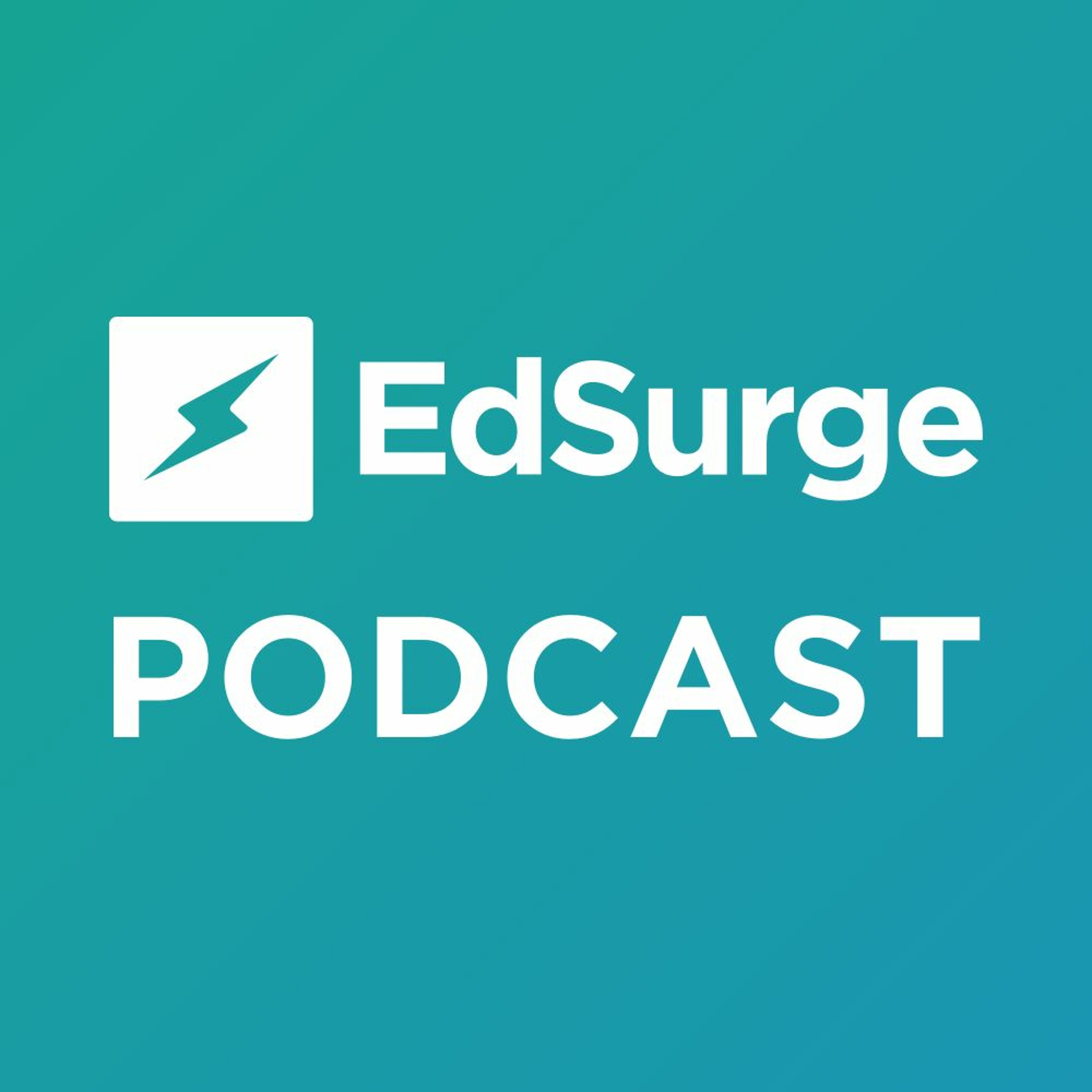
What Happened to the '$100 Laptop' Project?
Back in 2005, one of the biggest stories in tech was a push by a group of MIT professors to build a $100 laptop and give them to children in schools around the world. It was presented as a feel-good story that no one could object to. The story of how these laptops grew into a cultural phenomenon, what their educational impact was, and of what happened to them after they faded from public discussion, is the subject of a new book by Morgan Ames, an adjunct professor at UC Berkeley.
32:4805/11/2019
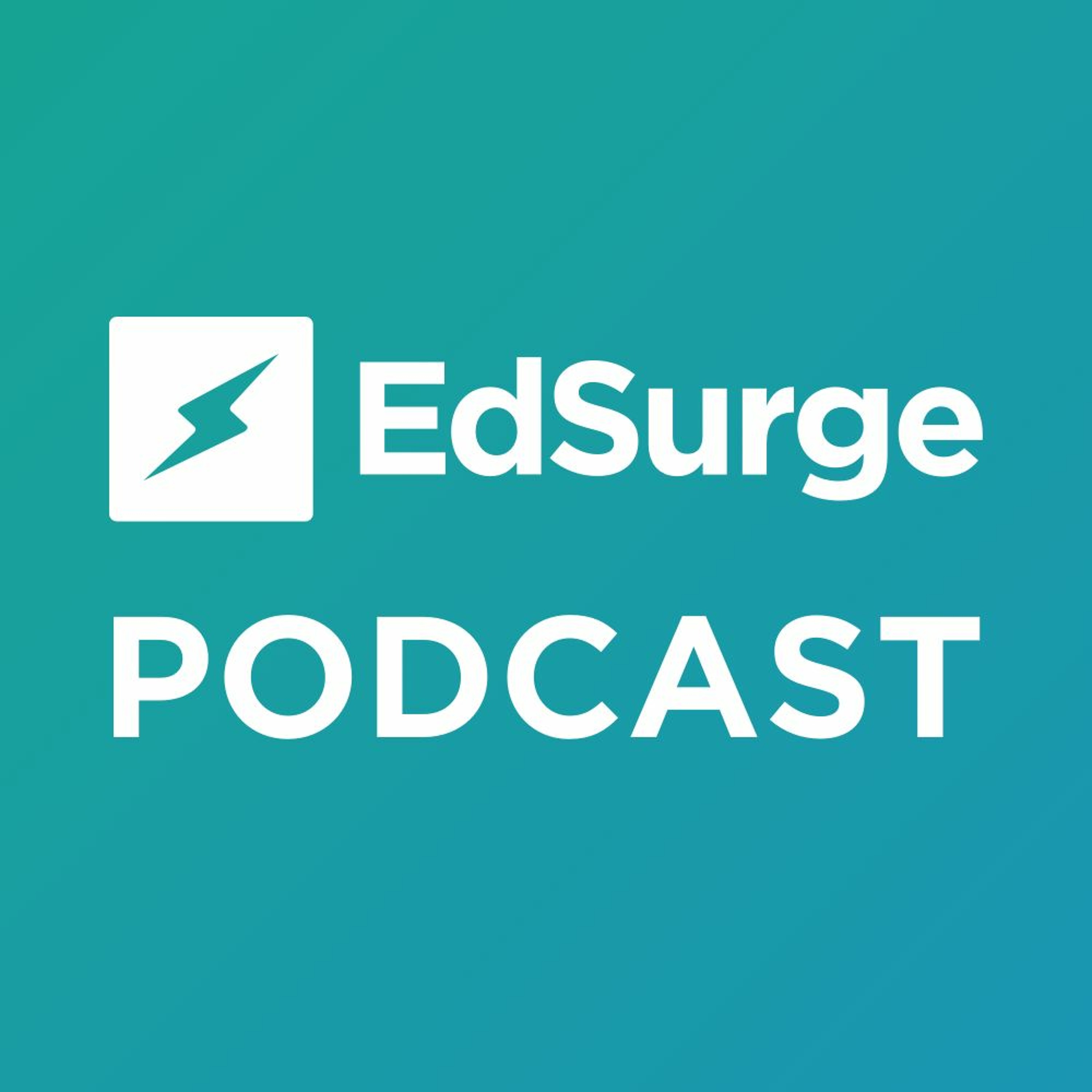
Speed Demons: How Quantum Computing Could Change Education
Computing experts love speed races, and there’s an ongoing battle to build the fastest computer on earth. Usually the overall trend follows what’s known as Moore’s Law, with the speed of the fastest computer doubling every 14 months or so. But last week saw the announcement of a new kind of speed record. A team of scientists from Google said they used a quantum computer to solve a problem in less than four minutes that would have taken a traditional supercomputer 10,000 years to complete. What could quantum computing mean for education?
24:2229/10/2019
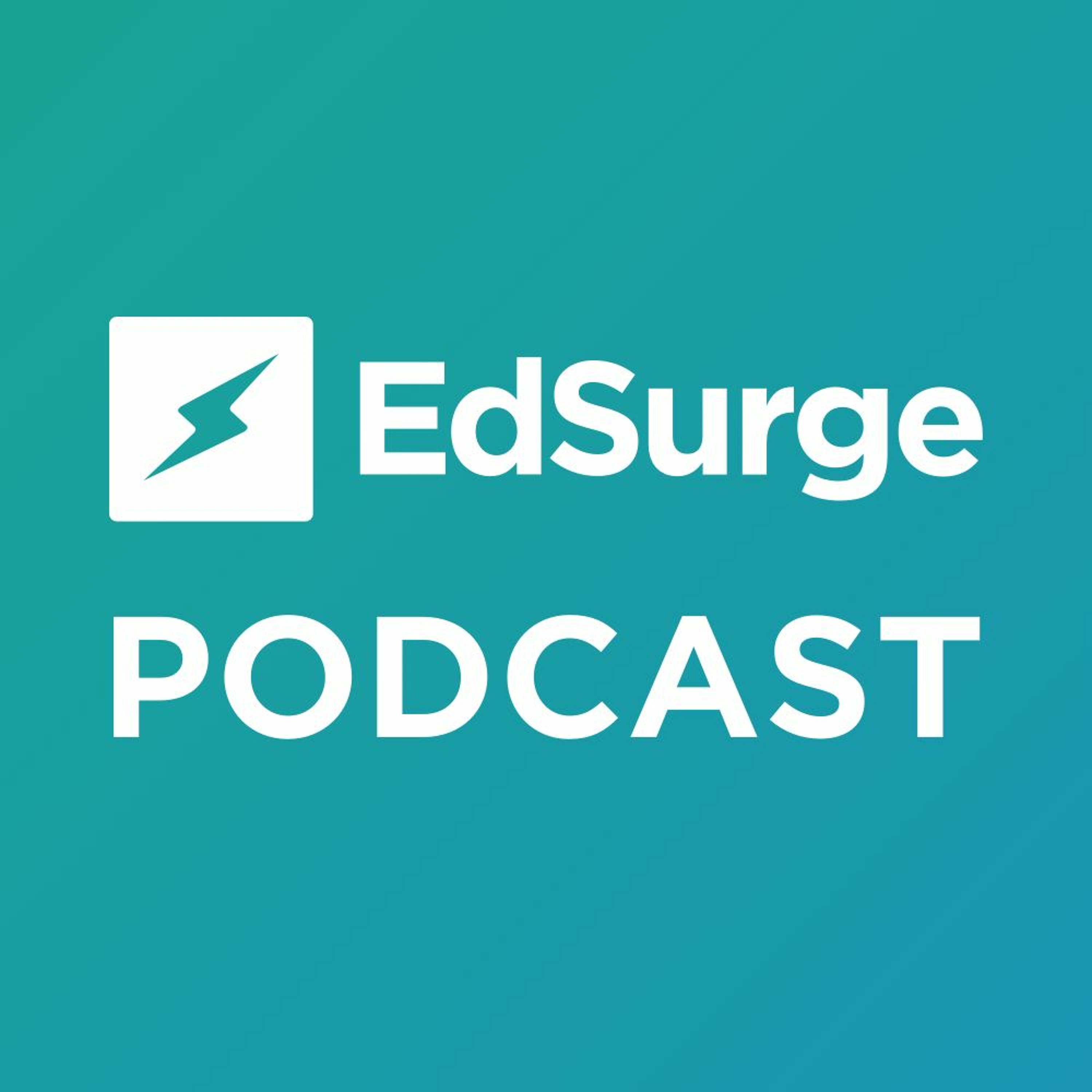
An Astronaut’s Guide to Culturally Responsive Teaching
In 1995, NASA astronaut Dr. Bernard Harris became the first African American to perform a spacewalk, and he has spent more than 18 days in space. Today, he's the CEO of NMSI, the National Math and Science Initiative, which runs programs designed to boost the number of STEM teachers. We talked with Dr. Harris about his mission to bring in culturally responsive teaching in STEM, and we asked what it's like to go to space (and what space food really tastes like.)
26:2422/10/2019
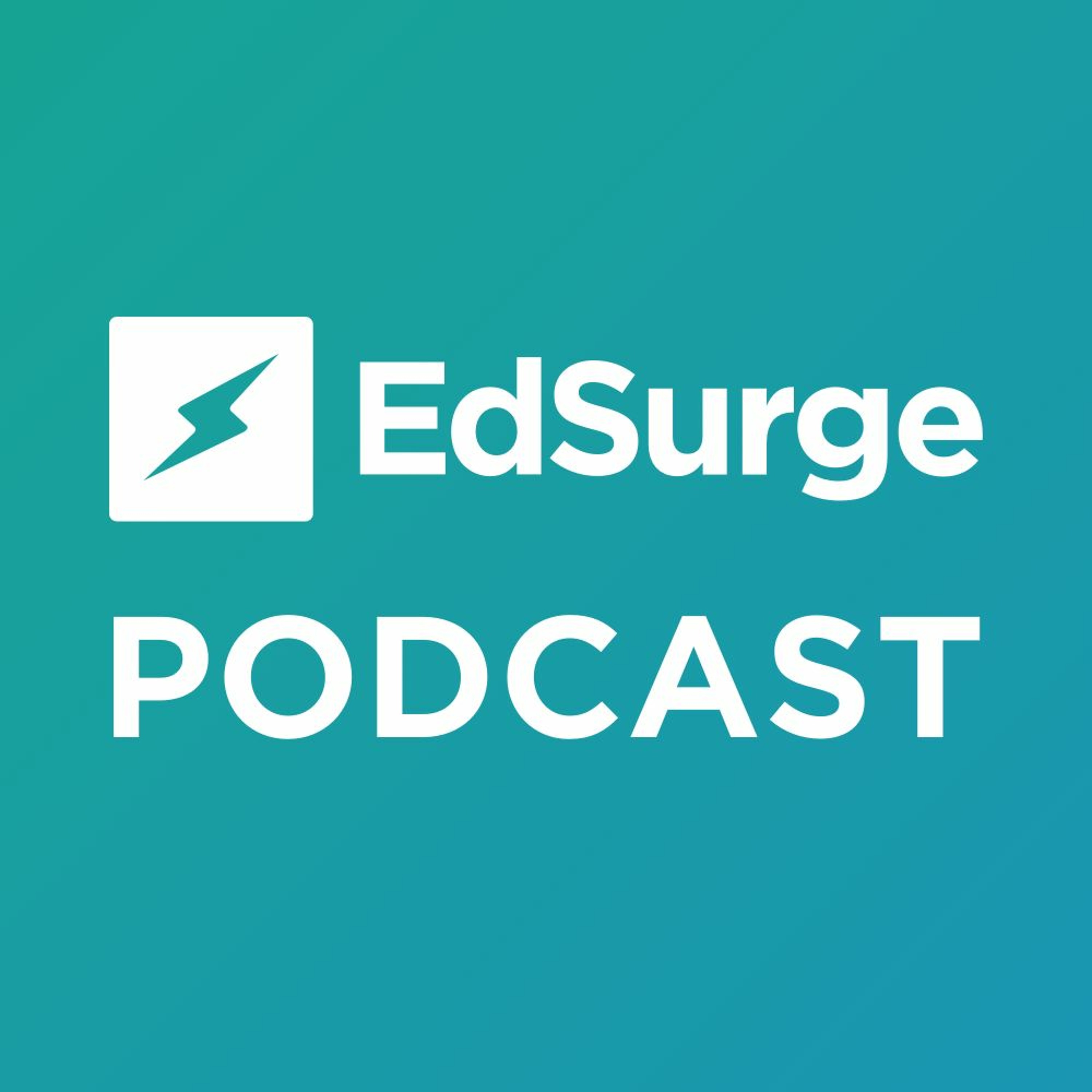
A ’Golden Age’ of Teaching and Learning at Colleges?
Researchers are making new discoveries these days about how people learn, and some of those findings are making their way onto campus, in the form of new teaching practices. That has Matthew Rascoff, associate vice provost for digital education and innovation at Duke University, excited about the possibility to make wide-scale improvements in how colleges teach.
29:2615/10/2019

The Internet Can Be a Force for Good. Here’s How.
What does it mean to be a good citizen? That question is complicated by today's digital environment, since today's kids—and adults too—live in both online and offline worlds. EdSurge sat down with one of the foremost experts on helping navigate these issues: Marialice Curran, founder and executive director of the Digital Citizenship Institute. Curran suggests some simple things anyone can do to be a better citizen, both on and offline.
21:3508/10/2019

Can a Sitcom Teach Philosophy? Meet a Scholar Advising 'The Good Place'
Today we’re talking about teaching using popular culture, and we’re focusing on a quirky TV comedy called The Good Place. The show is led by Michael Schur, who previously wrote for The Office and Parks and Recreation. But there’s an unusual person in the writer’s room of The Good Place—an academic philosopher from Clemson University, professor Todd May—one of our guests today. But can a network sitcom accurately teach concepts like existentialism and the works of Plato and Kant? And how much should colleges use pop culture in their courses?
27:4301/10/2019
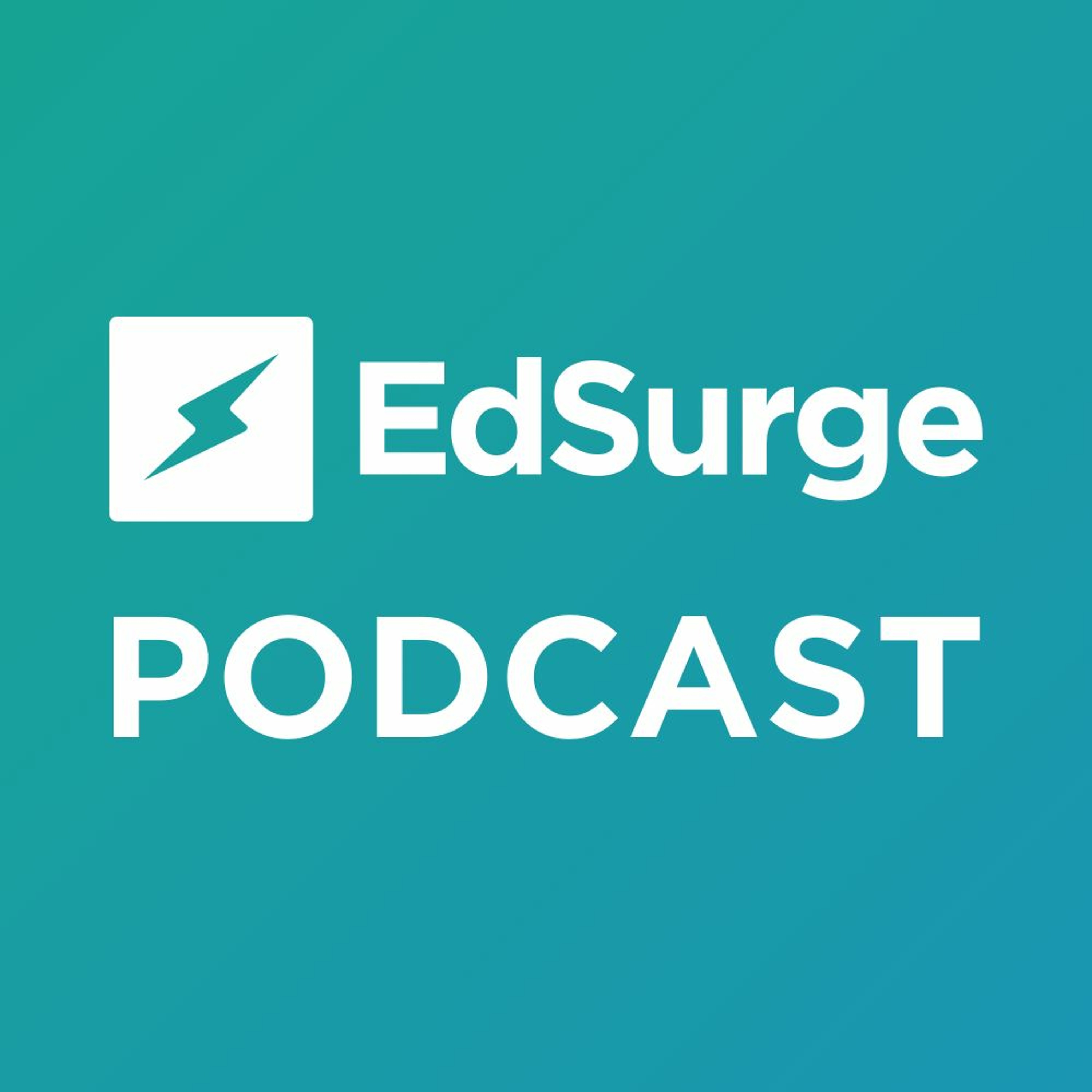
The Challenge of Teaching News Literacy
This week on the podcast we’re talking about news literacy, and the challenge of teaching students to navigate the relentless flow of information they get through social media and websites and YouTube and ... podcasts. Our guest, Peter Adams, has years of experience working with students like Luquin, first as a classroom teacher, then as a college instructor, and currently as senior vice president for education at the News Literacy Project.
24:5524/09/2019
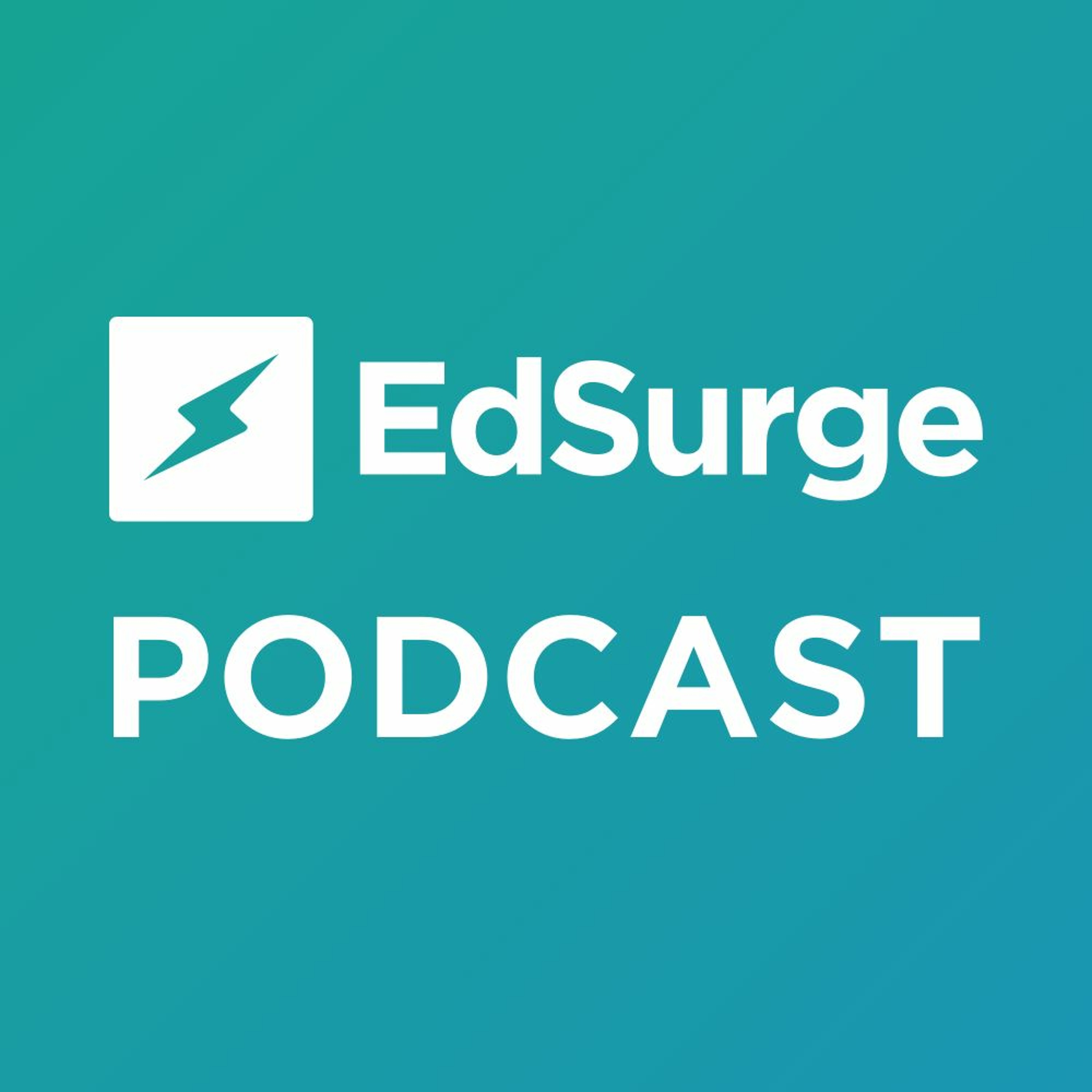
Bonus Episode: How Choosing College is Like Buying a Milkshake
What happens when a popular theory of market research used by fast-food restaurants (to do things like improve their milkshakes) is applied to the process of choosing a college? We talked to Michael Horn, co-author of a new book that does just that. But does it make sense to bring a theory from dollar-menu items to higher education?
27:5719/09/2019
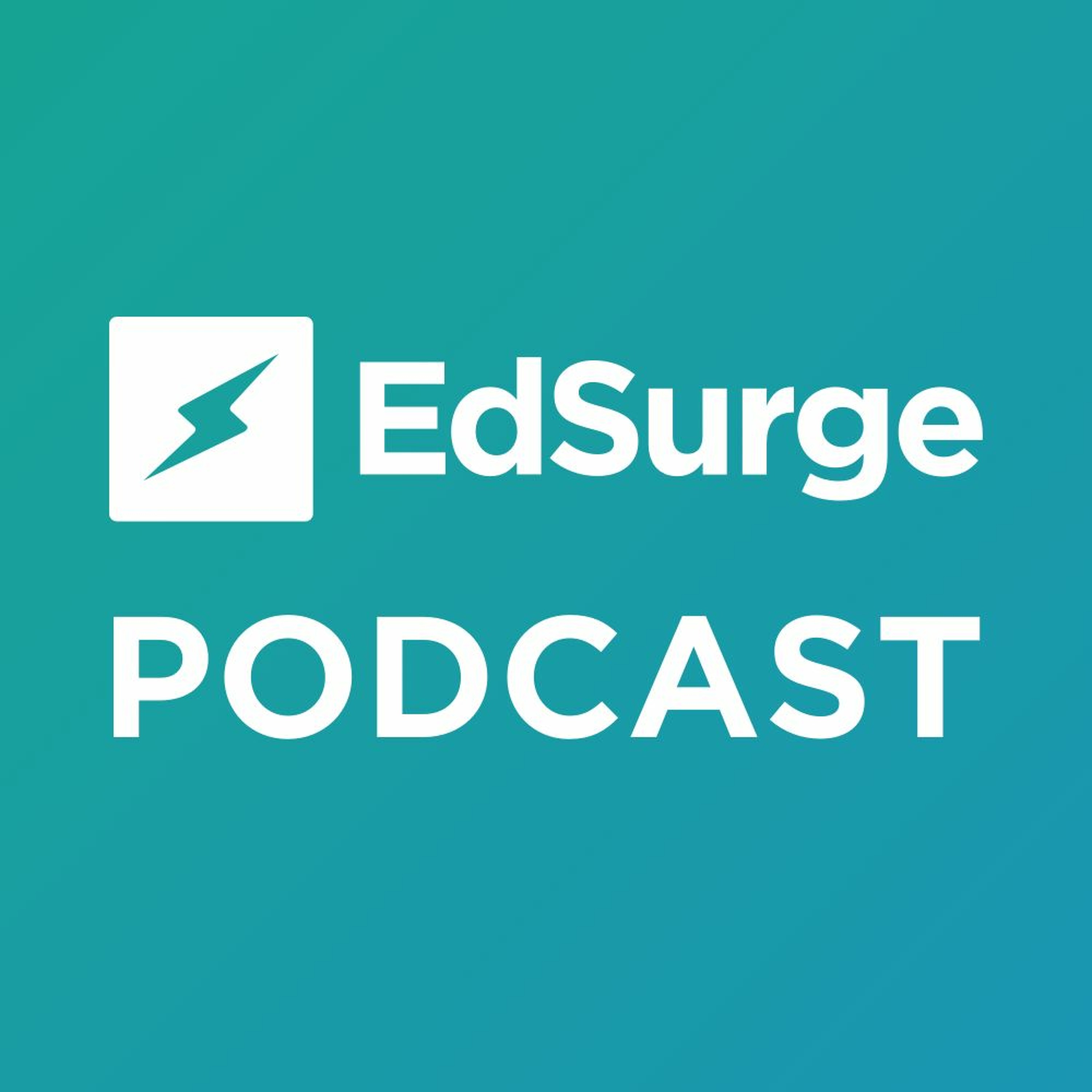
The Fight to Preserve African-American History
For this week’s podcast, we’re looking at the role that African-American scholars and teachers have played in preserving the history of slavery and its aftermath, which in so many ways is still not widely known and appreciated. We talk with scholars who helped mark the 400th anniversary of the arrival of the first Africans in what would become America.
Episode page: https://www.edsurge.com/news/2019-09-17-the-fight-to-preserve-and-teach-african-american-history
20:3017/09/2019

A Bored Student Hacked His School's Systems. Will the Edtech Industry Pay Attention?
This week we’re talking about cybersecurity at schools—and how secure—or in some cases how vulnerable—the tech systems in school systems are. At the center of our story: Bill Demirkapi, who managed to bust into two key student information systems of his high school, then tried to tell the edtech companies to get them to fix their software—with mixed results.
Episode page: https://www.edsurge.com/news/2019-09-10-a-bored-student-hacked-his-school-s-systems-will-the-edtech-industry-pay-attention
17:0410/09/2019
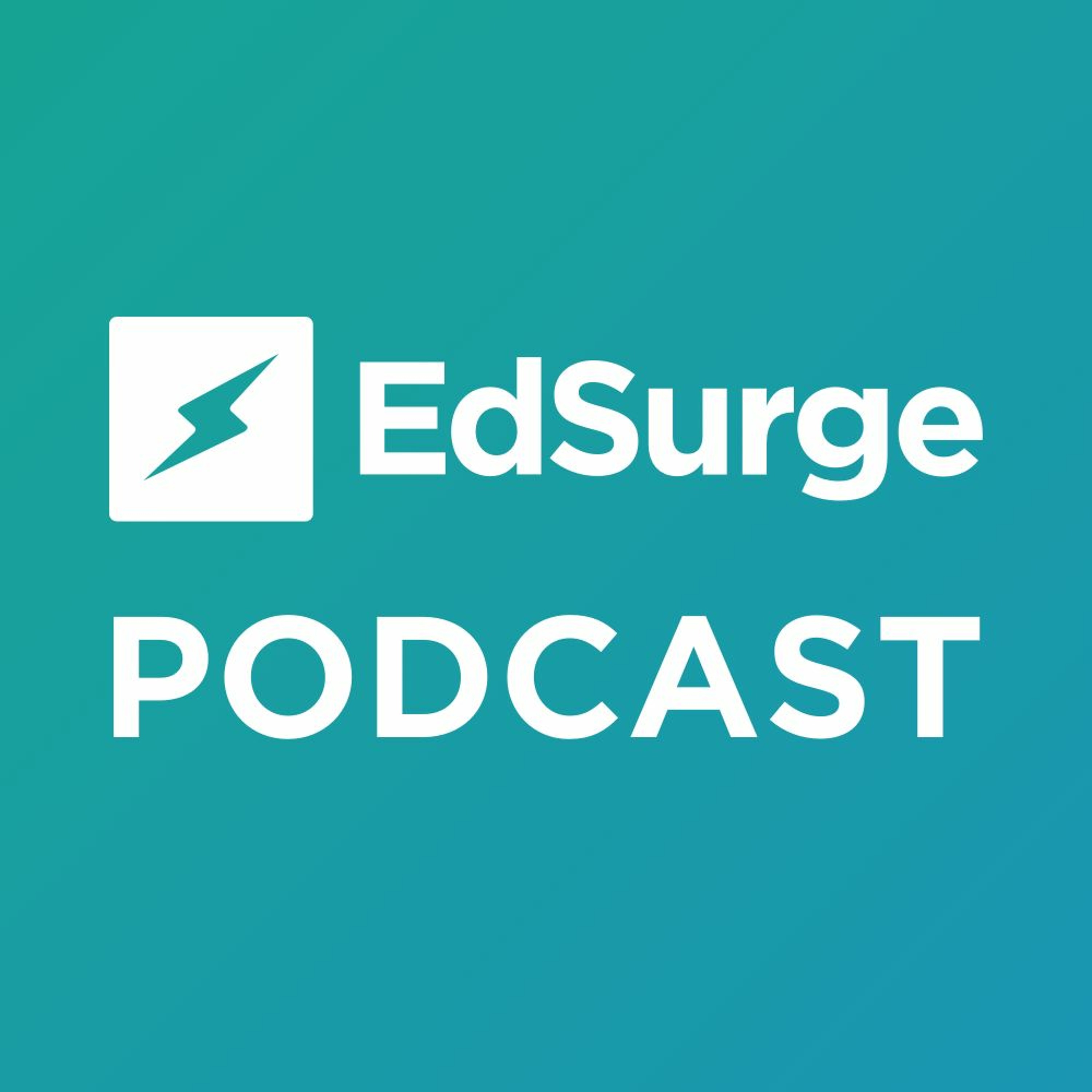
Satirical Takes on Higher Ed and Why They Matter
What is your favorite satirical take on higher education? Maybe Jane Smiley’s "Moo." Or Don DeLillo’s "White Noise"? Or it could be Rodney Dangerfield’s "Back to School." Let’s face it, there almost endless works of fiction poking fun at academic life. As the summer ends and we head into the fall semester, we wanted to take a moment to celebrate this rich tradition of parody of academic life, and look at what these works say about the big challenges facing higher education today.
For this episode, we talk to three different writing professors with something to say about satire. One is the author of an acclaimed academic satire. Another did an unusual work of satire on Twitter to call attention to the plight of adjuncts. And the third has a suggestion for the academic satire that he wishes someone out there would write.
Episode page: https://www.edsurge.com/news/2019-09-03-satirical-takes-on-higher-ed-and-why-they-matter
Julie Schumacher's recommended works of campus satire:
Don DeLillo, "White Noise"
David Lodge, Campus Trilogy
Lan Samantha Chang, "All is Forgotten, Nothing is Lost"
John Warner's recommended works of campus satire:
David Lodge, Campus Trilogy (his favorites are the first two, "Changing Places" and "Small World")
Richard Russo, "Straight Man"
Francine Prose, "Blue Angel"
30:5903/09/2019

Forget the Scientific Method — Why We May Be Teaching Science All Wrong
What if teaching the scientific method in schools is giving students the wrong idea about how rigorous work is done by scientists? That’s the unusual hypothesis being made by John Rudolph, an education professor at the University of Wisconsin-Madison and author of “How We Teach Science: What's Changed, and Why It Matters.” We sat down with Rudolph to talk about the fascinating history of teaching the subject in the U.S., and why we’re still searching for the right approach.
Episode page: https://www.edsurge.com/news/2019-08-27-should-schools-teach-the-scientific-method-new-book-says-maybe-not
23:1527/08/2019
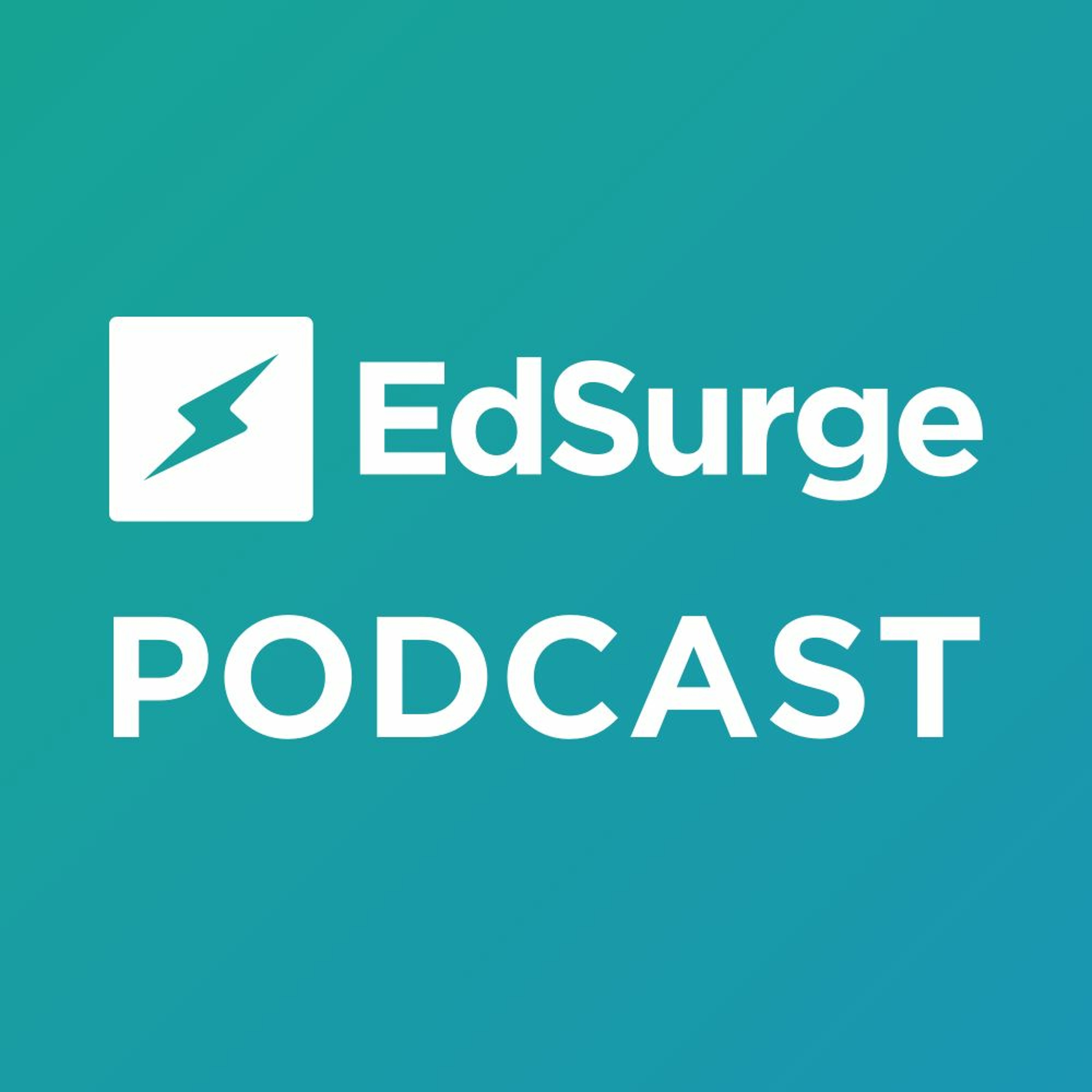
The New Jim Code? Race and Discriminatory Design
People have a tendency to treat technology and big data as neutral, sterile and immune to mortal failings. Yet the digital tools we use at schools, jobs and home don’t simply fall from the sky—humans produce them. And that means human biases can and do slip right into the algorithms. We talked with Ruha Benjamin, associate professor of African American Studies at Princeton University and author of new book “Race After Technology.” She points out that some people’s fantasies are other people’s nightmares.
26:5320/08/2019

Can Anyone Be an Inventor? Why MIT’s Invention Education Officer Says Yes
When you hear the word “inventor,” you might think of household names like Thomas Edison, Alexander Graham Bell, or the Wright brothers. But today, there are plenty of young inventors whose names you’ve never heard of—not yet, anyway. These are middle and high school students who have developed solutions to major economic and social challenges, ranging from health care and transportation to agriculture and the environment. Leigh Estabrooks, invention education officer at the Lemelson-MIT program, thinks all students—no matter their GPAs or ZIP codes or learning challenges—can be inventors.
20:2113/08/2019
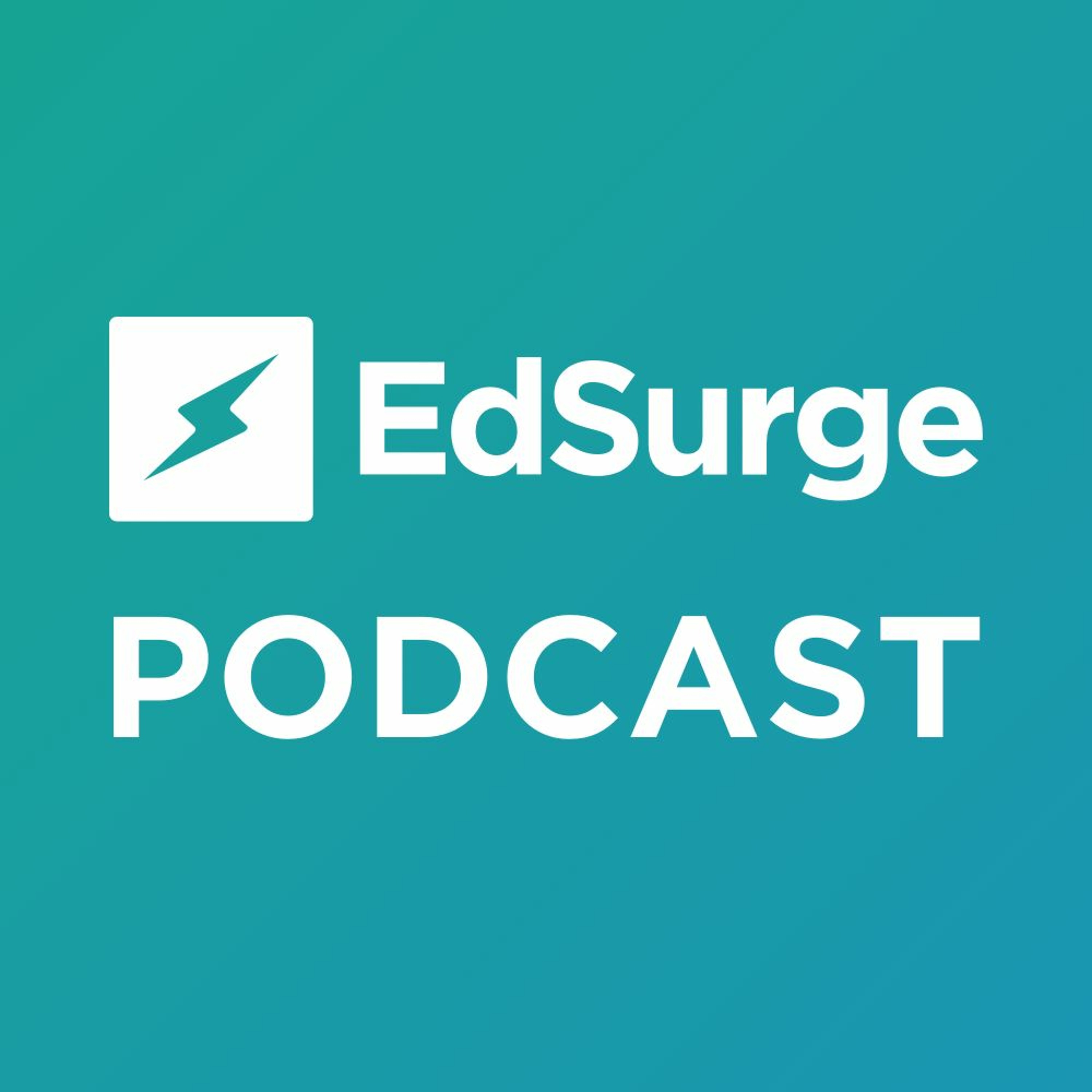
Mixed Reactions to the Latest College Admissions Scandal
Parents are giving up custody of their kids to get need-based college financial aid. That was a headline last week in ProPublica Illinois, and it got people talking once again about the madness around college admissions. In comments on the ProPublica article and in other online forums, though, plenty of people chimed in expressing sympathy for these Chicago-area parents, calling their move a clever solution to an overwhelming challenge facing their children. To these commenters, the real problem is the high cost of college and what they see as unfair rules around how much parents are expected to contribute.
16:1906/08/2019
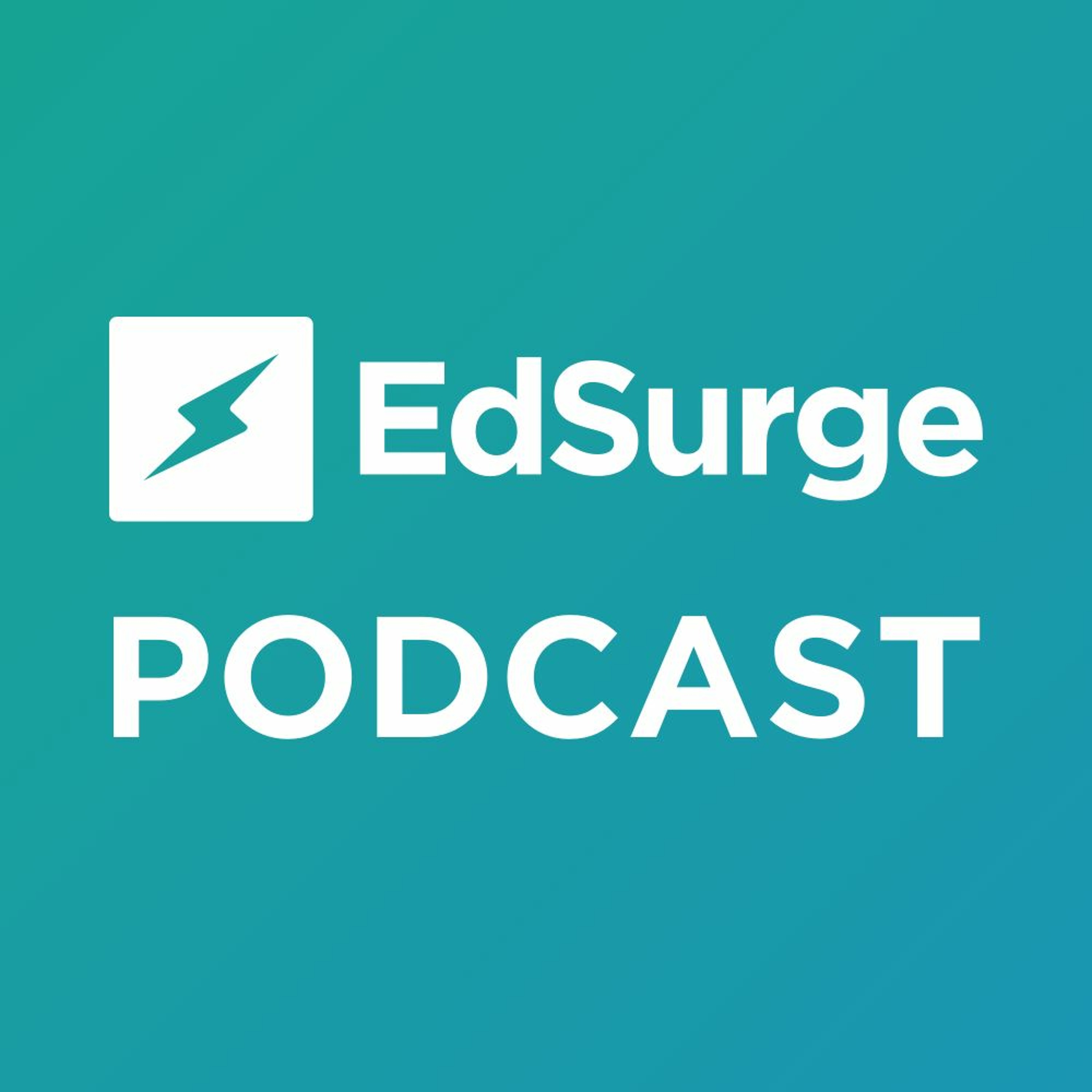
How to Bring ‘Mastery Learning’ to the Classroom
One of the most popular topics these days in education is mastery learning—the idea that the pace of a class should match what each student is ready to learn, as a way to ensure they’re really grasping material. But it can be hard to show educators what mastery learning looks like in practice. Cara Johnson has extensive experience both teaching and helping others using the approach. She talked with EdSurge about how she reaches parents and skeptical students—and shares her best tips for a successful mastery classroom.
23:1430/07/2019
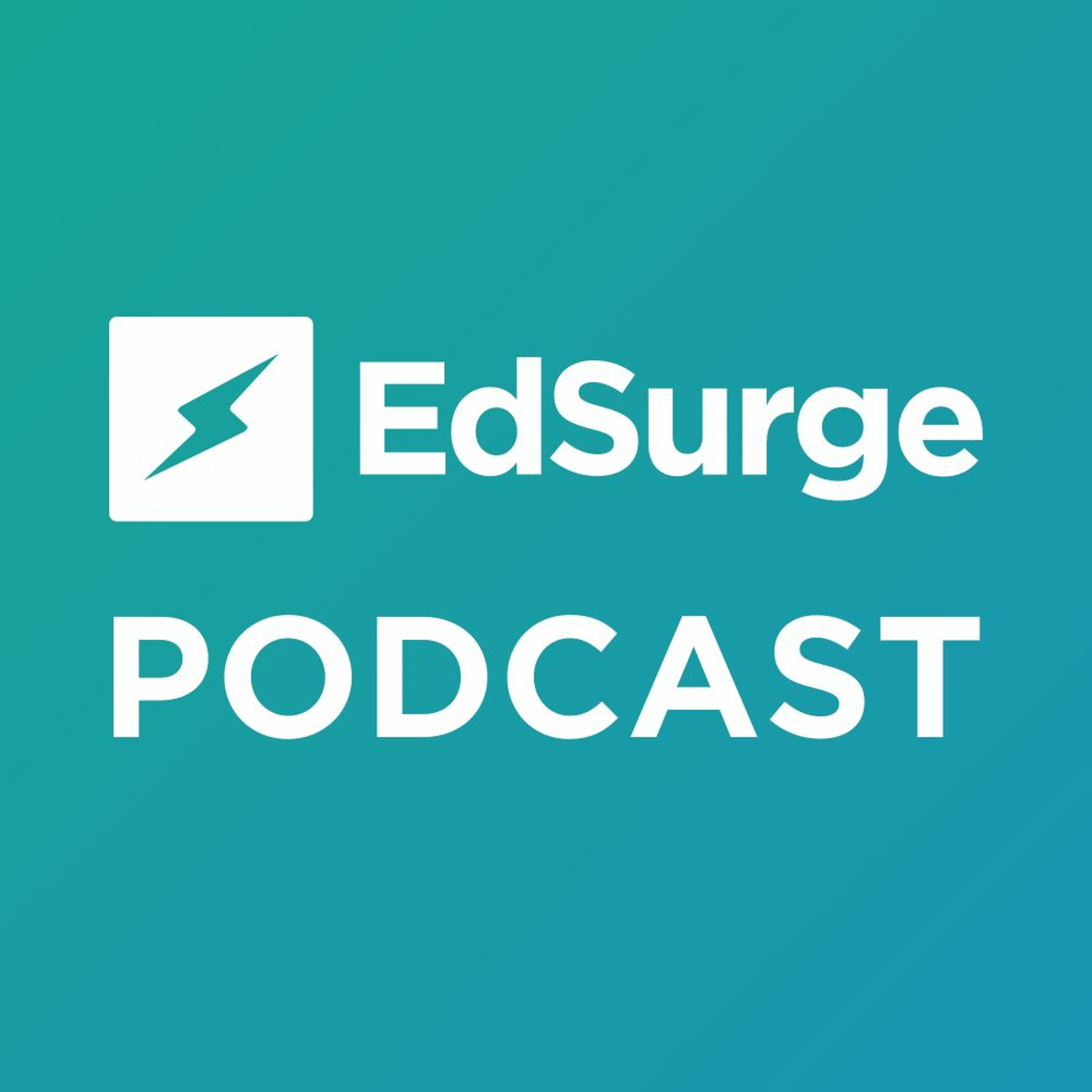
What 6 Million Syllabi Reveal About Higher Education
What if you could map every book and article assigned in college courses around the world and see which authors are making the most impact? A project run out of Columbia University is working to do just that. It’s called the Open Syllabus Project, and this month its leaders released a new version of their tool that analyzes assignment lists from more than six million syllabi. But there could be unintended consequences.
14:4423/07/2019
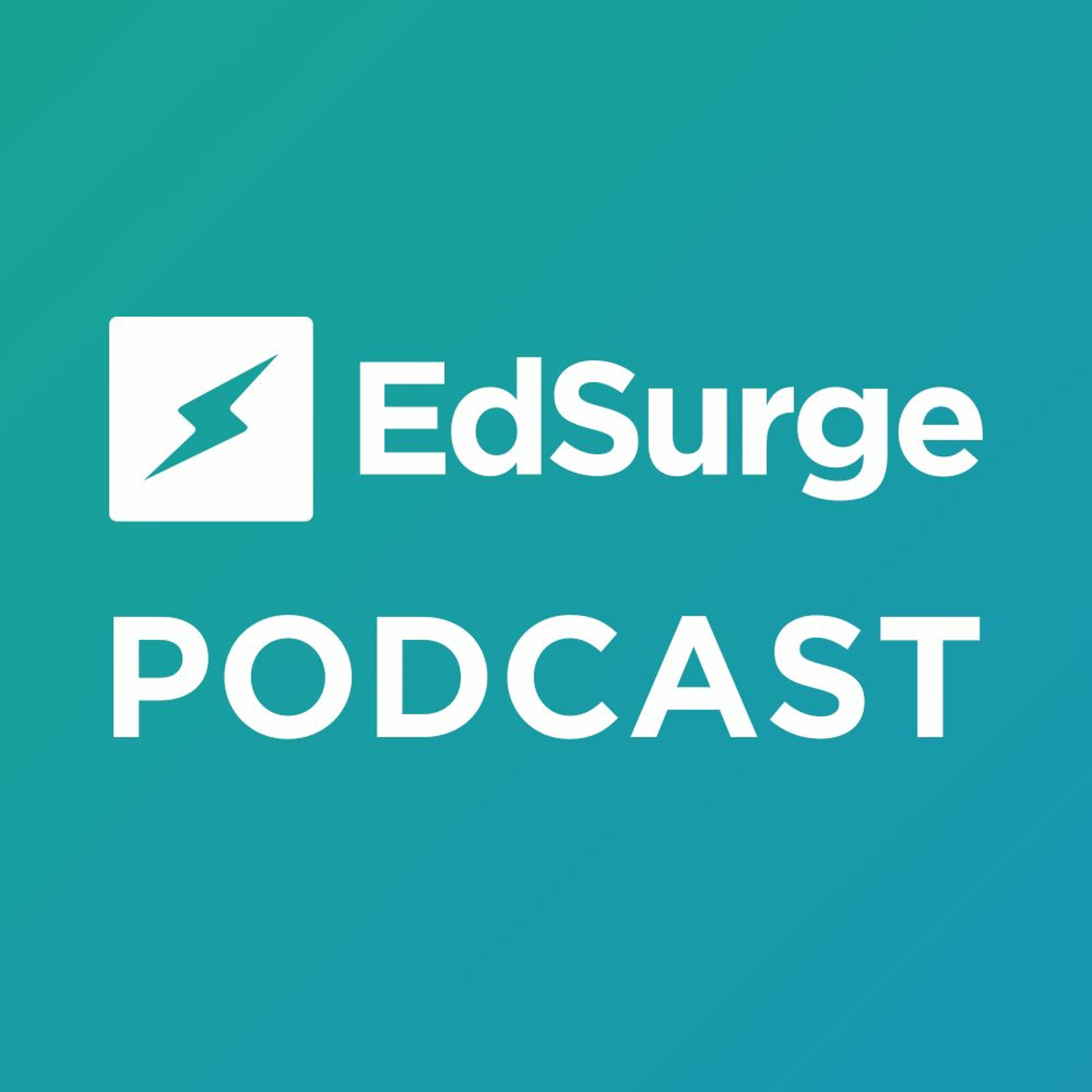
Bonus Episode: When an Online Teaching Job Becomes a Window into Child Abuse
Online tutoring is big business—especially for a growing number of companies that connect native English-speaking teachers with children in China for live video lessons. These services can work really well as second jobs teachers in the U.S., who can wake up early and get in a couple of hours of tutoring before going to their classroom jobs. But some teachers say they’ve wound up facing unexpected encounters, as they’ve witnessed parents engage in harsh physical discipline on screen that some describe as abusive. So what do you do when you’ve seen something like this? And what should the companies who run these tutoring services do? Read the full story at http://bit.ly/tutoringconcerns
21:4417/07/2019

Sal Khan: Test Prep Is ’the Last Thing We Want to Be’
For most of us, hearing something just once isn’t nearly enough to commit it to memory. But with today’s crowded curriculum, sometimes one explanation is all kids get. Ten years ago, Sal Khan set out to change that with his Khan Academy videos, which let kids replay lessons as many times as they want. EdSurge sat down with Khan to discuss his vision for reinventing schools, his recent focus on testing and what he thinks about the recent stumbles of AltSchool, a nearby network of tech-driven independent schools.
27:3416/07/2019
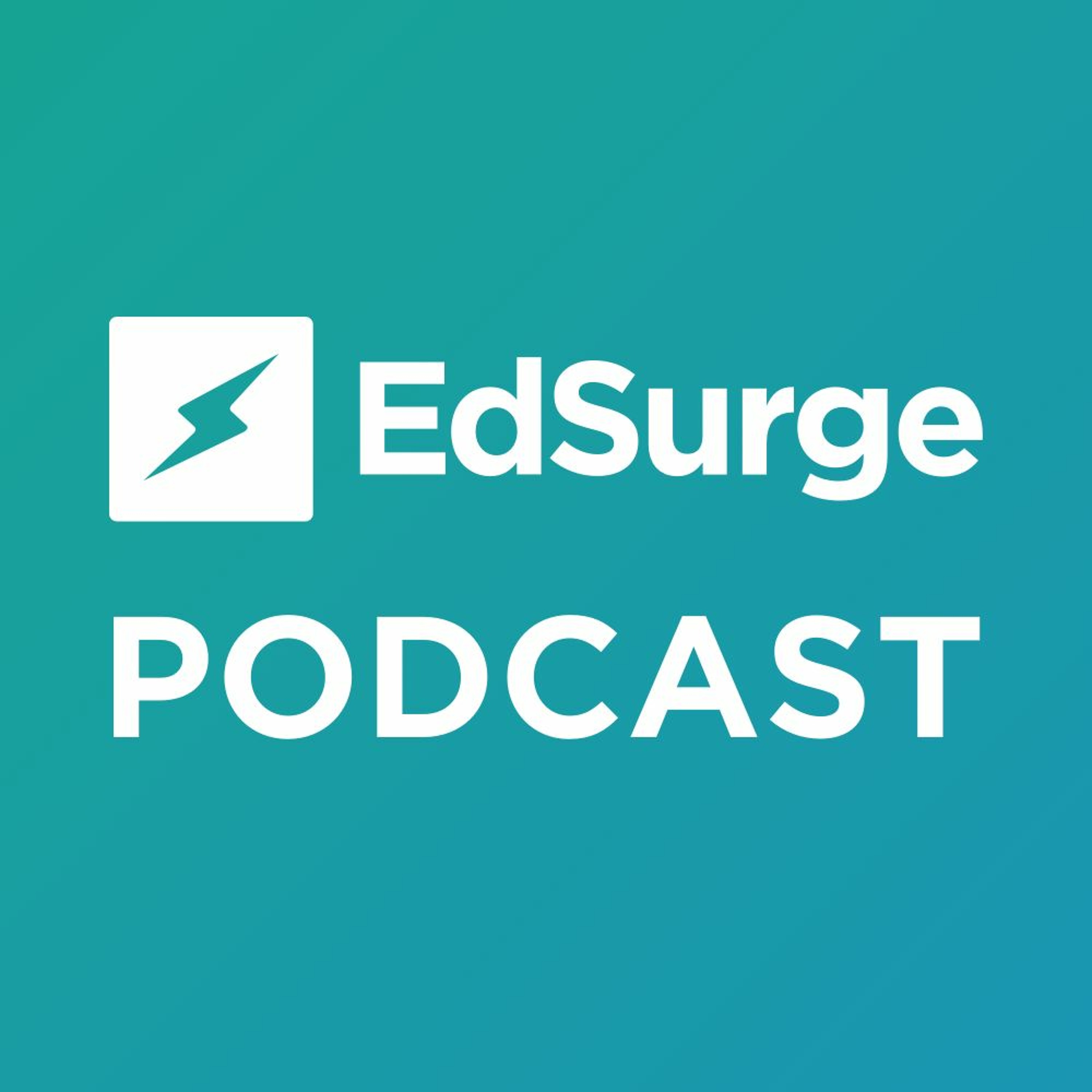
What Impact Investing Means in Education
“Impact investing” is a term that has become increasingly trendy. And one of the largest higher-ed foundations—The Lumina Foundation—is getting in the game. John Duong, managing director of Lumina Impact Ventures, explains how venture capital supports its mission to drive better postsecondary outcomes, and why “impact-washing” (a spin on whitewashing) is increasingly becoming a concern.
21:2709/07/2019

Meet Anthony Johnson: Teacher of the Year. Rebel ‘Mayor.’ High School Drop-Out.
This week’s podcast features an unlikely education leader. His name is Anthony Johnson, and the title of his book explains the unlikely part: it’s called High School Dropout to Teacher of the Year. Johnson’s story is about second chances and falling in love, the surprising parallels between his work as a correctional officer and his work as an educator and what it means to reinvent the system that failed him. Listen here.
10:5602/07/2019
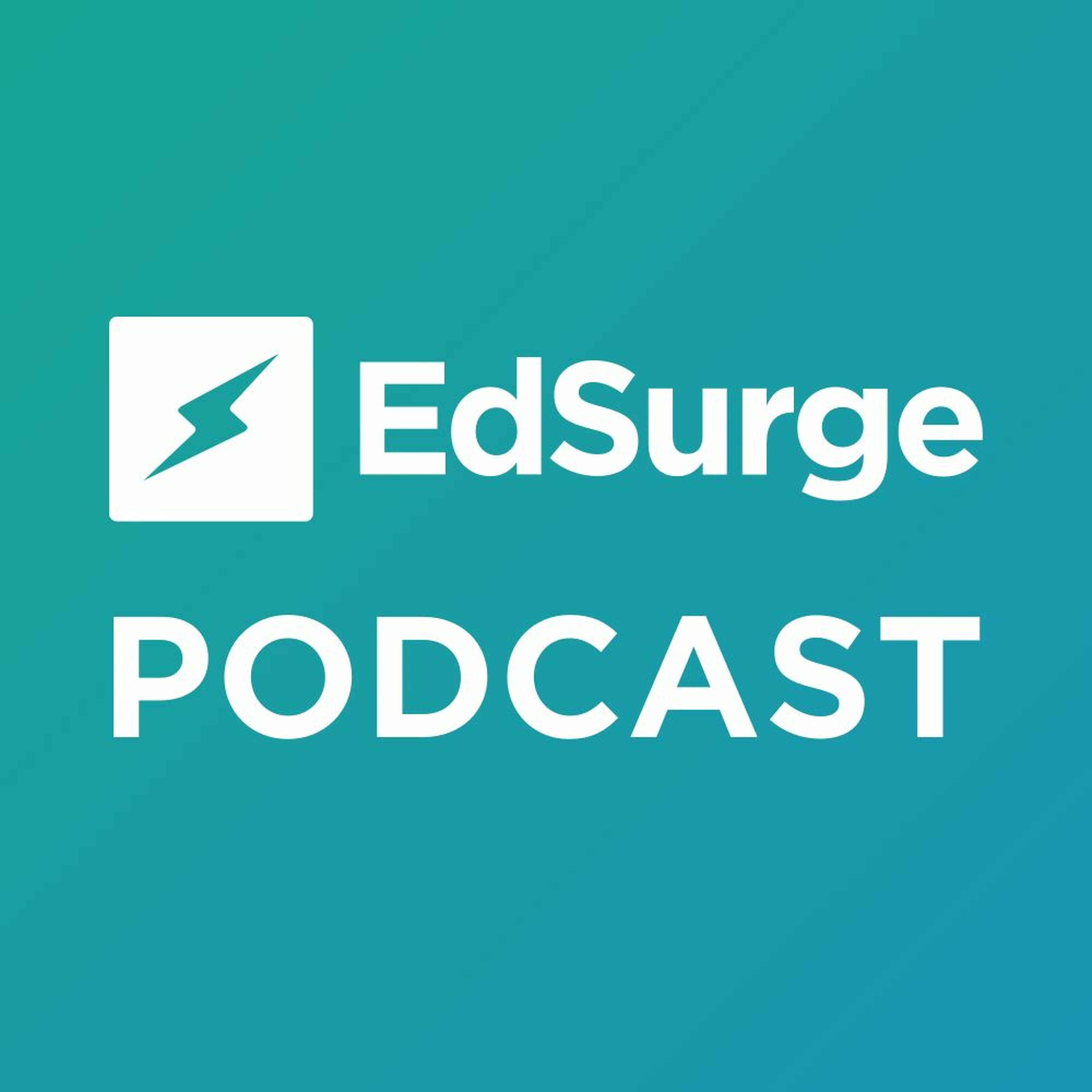
Higher Ed Has Become an 'Entrepreneurial and Philanthropic Wild West’
Plenty of groups these days are trying to reinvent college. There are entrepreneurs and foundations rushing to try to offer higher education in new shapes, sizes, formats and price points. Meanwhile at colleges, researchers and innovators are diving into learning science and experimenting with new teaching methods as well. But those groups don’t always talk to each other, or even know about each other are working on. This week on the podcast we talk with Mitchell Stevens, a Stanford University sociology professor who wants to create more 'connective tissue' among these disparate groups.
22:3925/06/2019
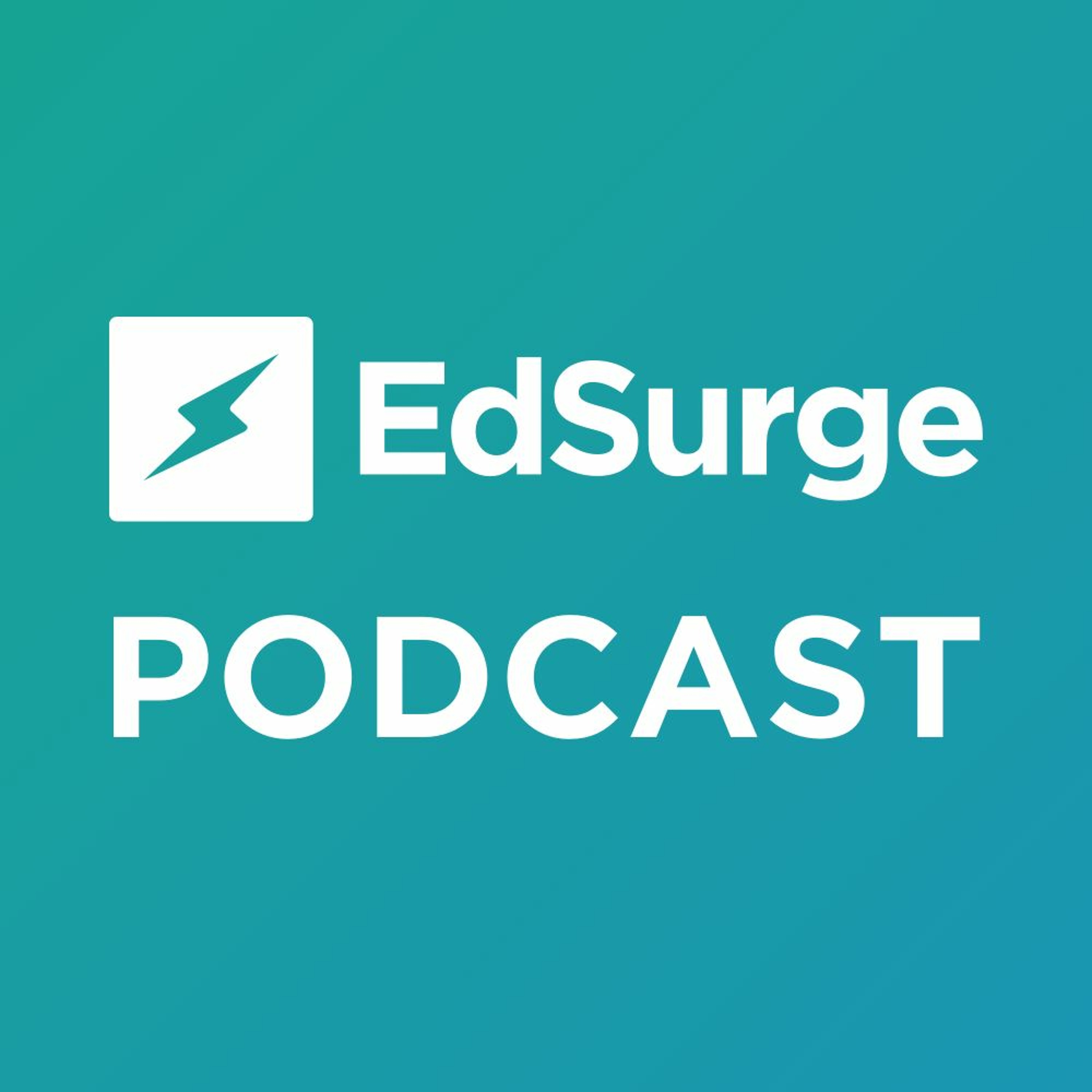
What It’s Like Navigating the Strictest Student Privacy Law in the Country
In Louisiana, educators have to worry about privacy when it comes to technology. The state has perhaps the most restrictive data-privacy law in the country when it comes to education, where violators can be punished by up to six months in prison or $10,000 in fines. EdSurge sat down with Kim Nesmith, director of data governance, privacy, and edtech for the Louisiana Department of Education, to talk about the strictest student data privacy law in the country—and what it takes to help Louisiana educators face their fears and offer technology services to students and families in spite of that law (and with a healthy awareness of privacy).
20:3018/06/2019
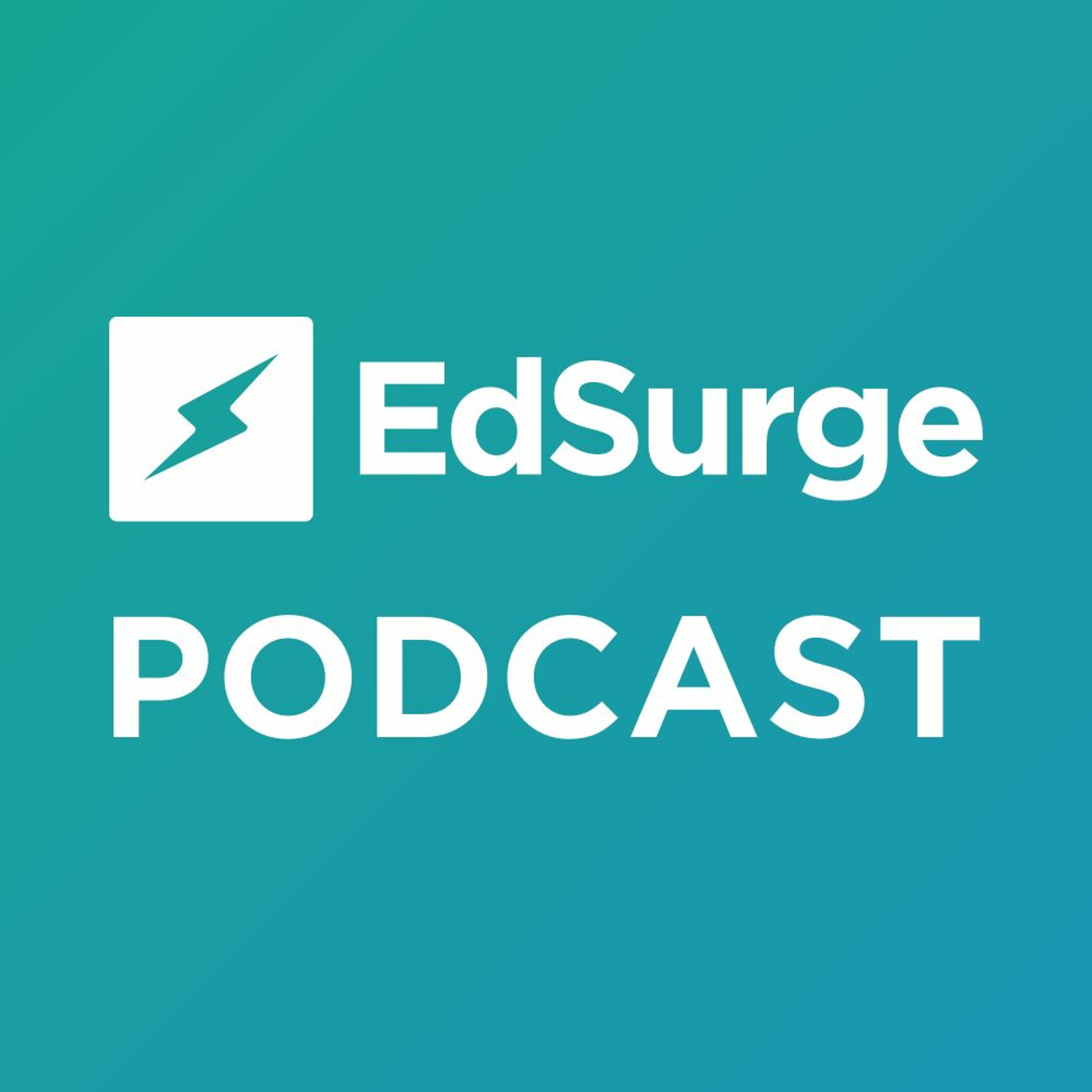
Can Work Be Dignified in an Automated World?
“Someone should create a Center for Social Solutions, identify a handful of challenges and try to work on them over the next decade.” That directive guided professor, historian and author Earl Lewis to start just such a center at the University of Michigan. EdSurge sat down with Lewis to talk about how the center is using research to tackle some of the biggest challenges our world faces today.
25:5011/06/2019
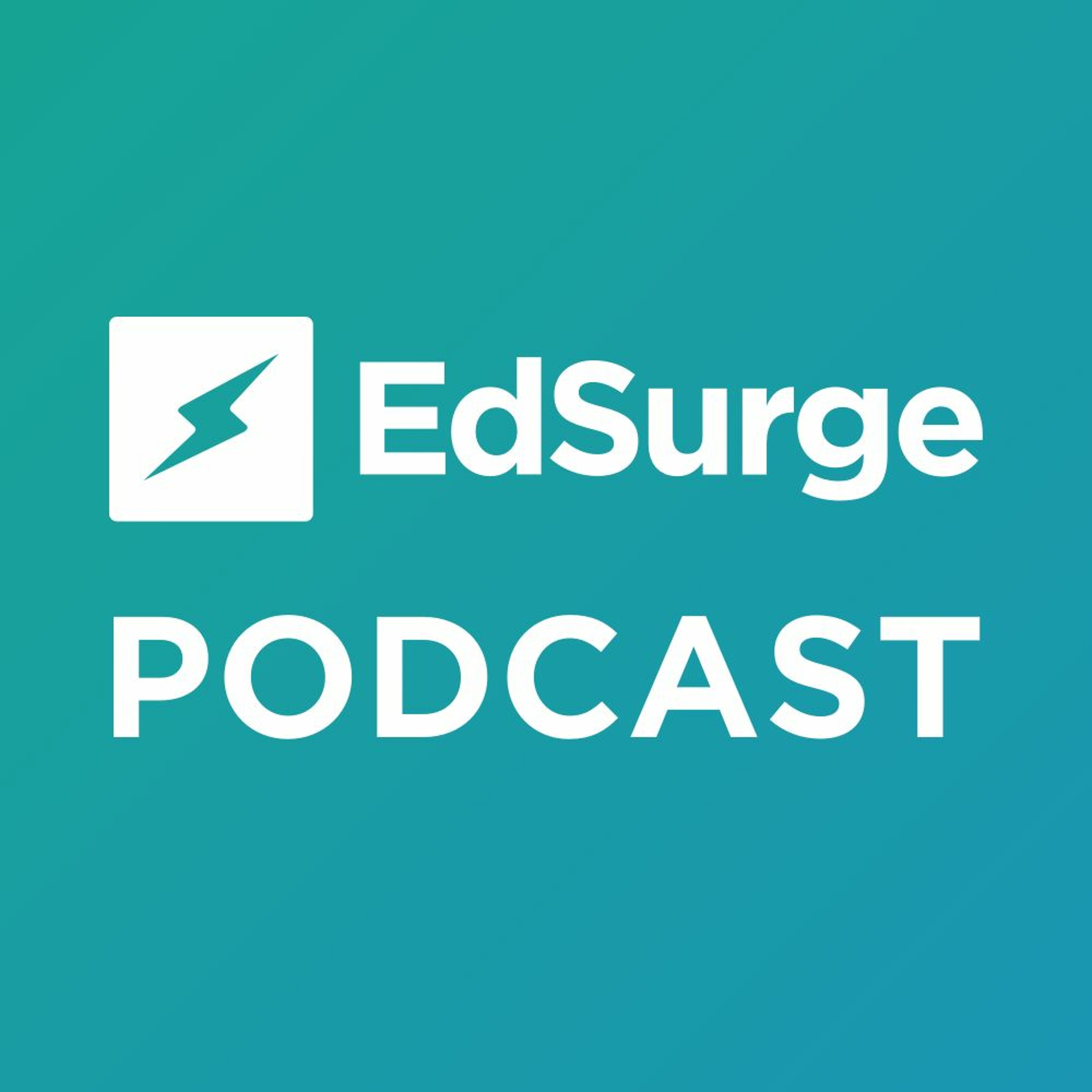
Transgender Students Are Still at Risk, But Schools Can Help
At a time when more than 7 in 10 transgender students face bullying or harassment over their gender identity, some advocates are trying to buck the troubling trend and create more inclusive environments for students. Advocates Becca Mui and Vanessa Ford share their thoughts on gender-neutral bathrooms, tackling bullying and how every school can prioritize safety for all students.
24:2104/06/2019
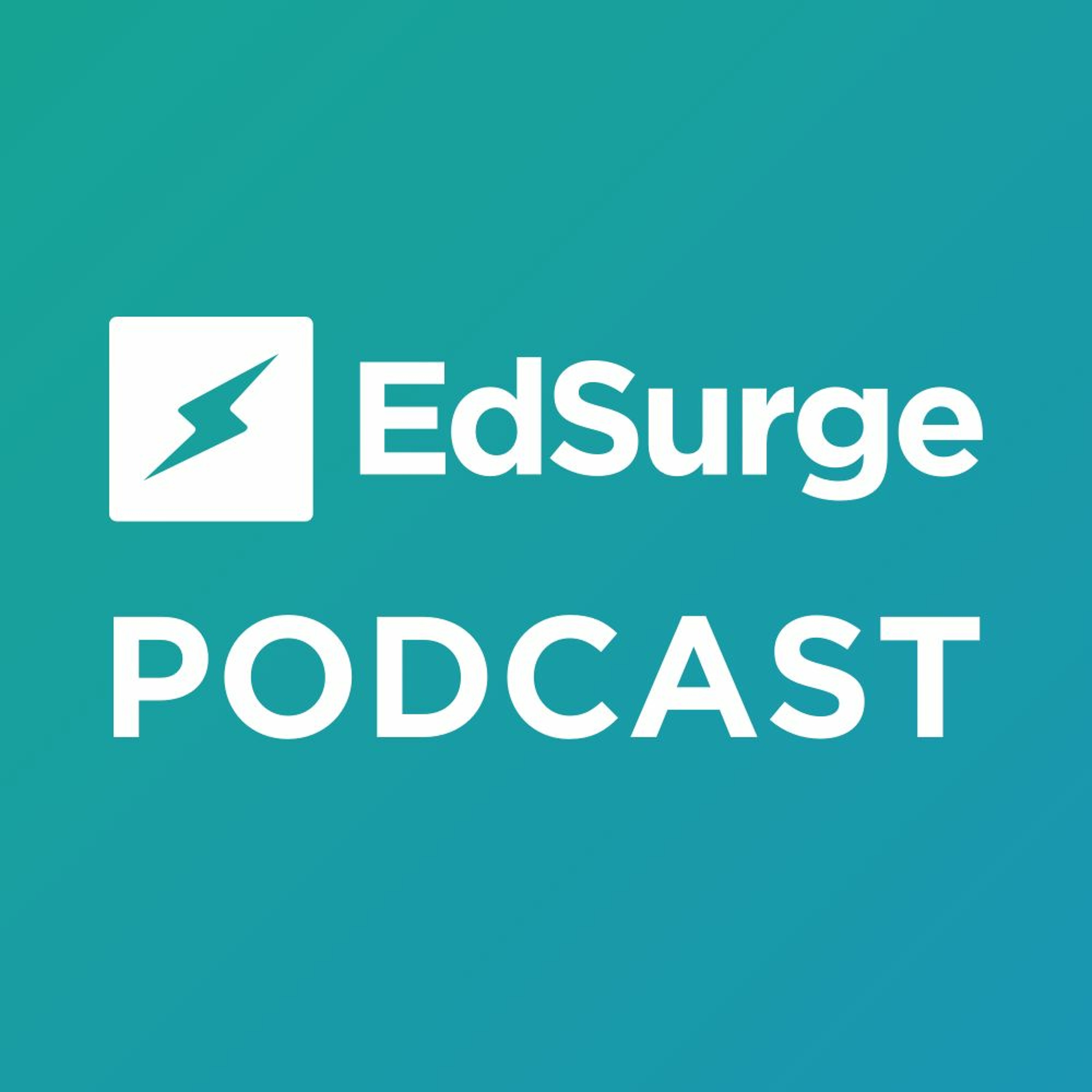
Bonus Episode: No Difference Between Public and For-Profit Higher Ed?
"I no longer think there's a huge difference between for-profit and public higher education," Tweeted George Siemens, a professor at the University of Texas at Arlington and a longtime observer of tech in higher education. "Sit in enough faculty meetings, meet with enough leadership, and it becomes clear that it's all about money." The argument got some pushback from others who disagreed, so we reached out to Siemens and others in the conversation to hear them out.
25:0530/05/2019
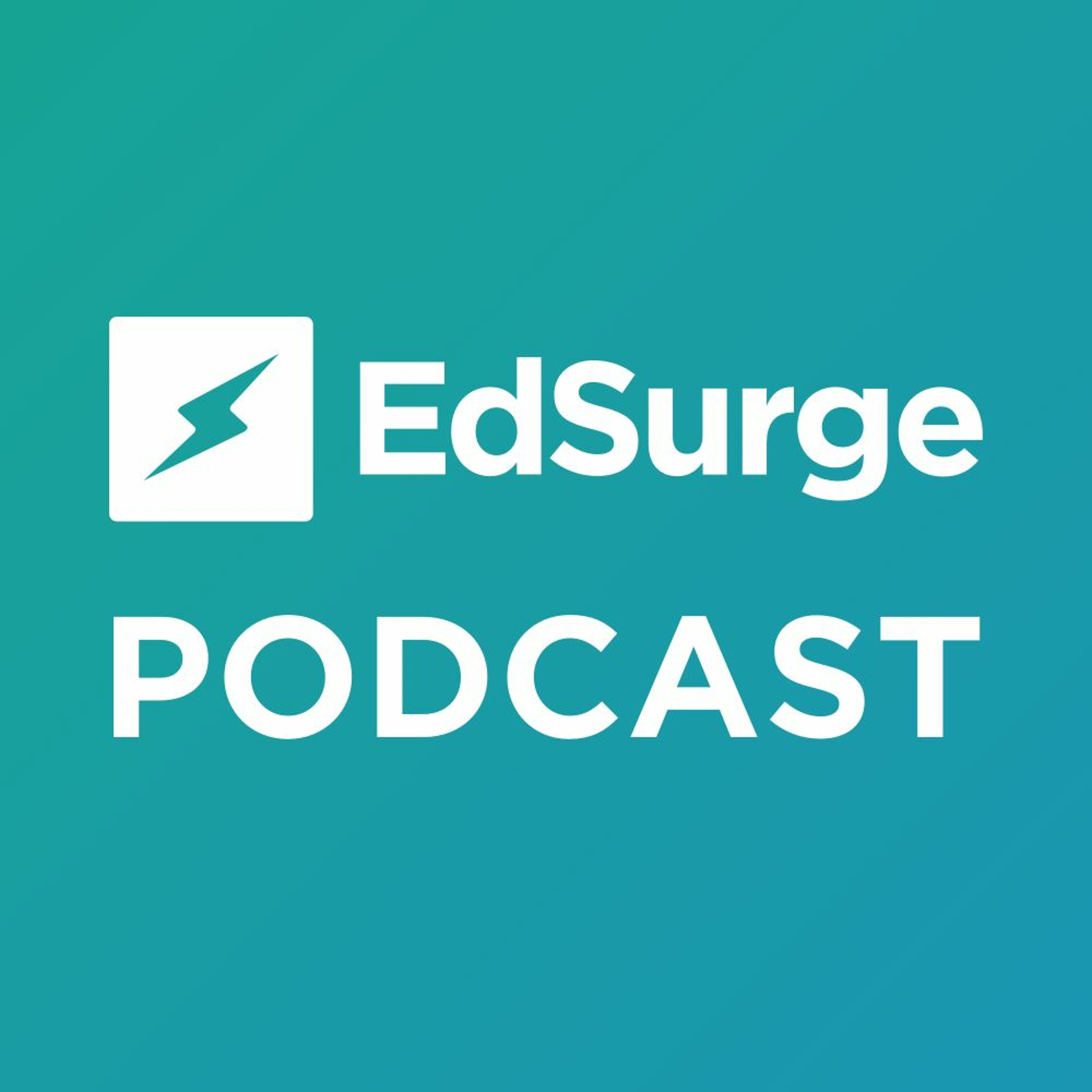
Inside a Student’s Hunt for His Own Learning Data
It's hard for students, professors or even journalists to get a glimpse of just how much data colleges collect on students these days as they go about their coursework. That didn’t stop Bryan Short, who was a student at the University of British Columbia in 2016 when he got curious to know what information the learning management system at his university had collected on him and how it was being used. And what he found—that is, once he got a hold of it—left him feeling pretty uneasy.
23:0628/05/2019
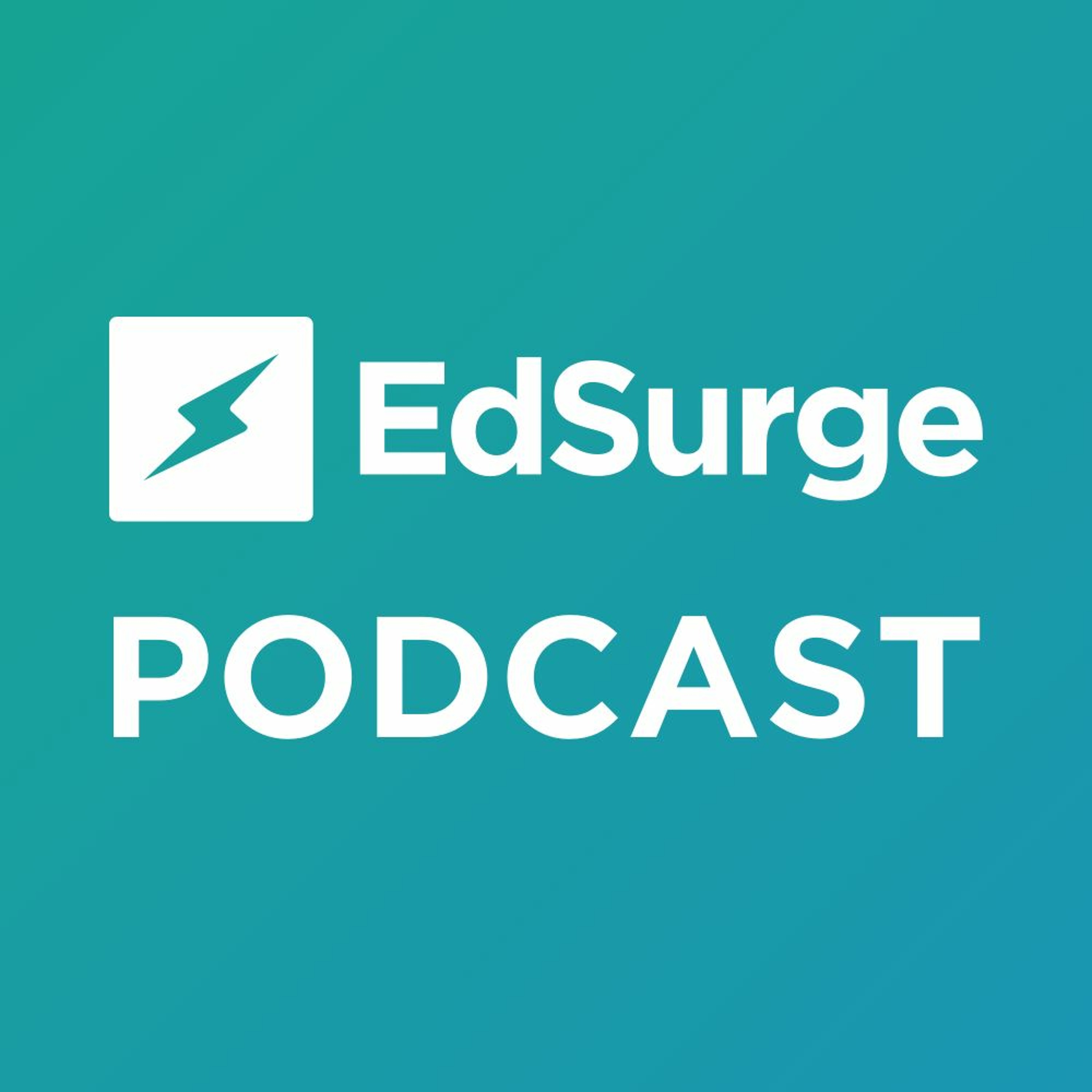
Better Representation in Artificial Intelligence Starts Early
Artificial intelligence is changing things—or, the people who are building the algorithms and technologies behind artificial intelligence are. And one of the challenges with bias in Artificial Intelligence tends to come down to who has access to these careers in the first place, and that's the area that Tess Posner, CEO of the nonprofit AI4All, is trying to address. EdSurge sat down with Posner, who told us about how her organization works with diverse youth to introduce them to AI fields and careers.
24:3221/05/2019
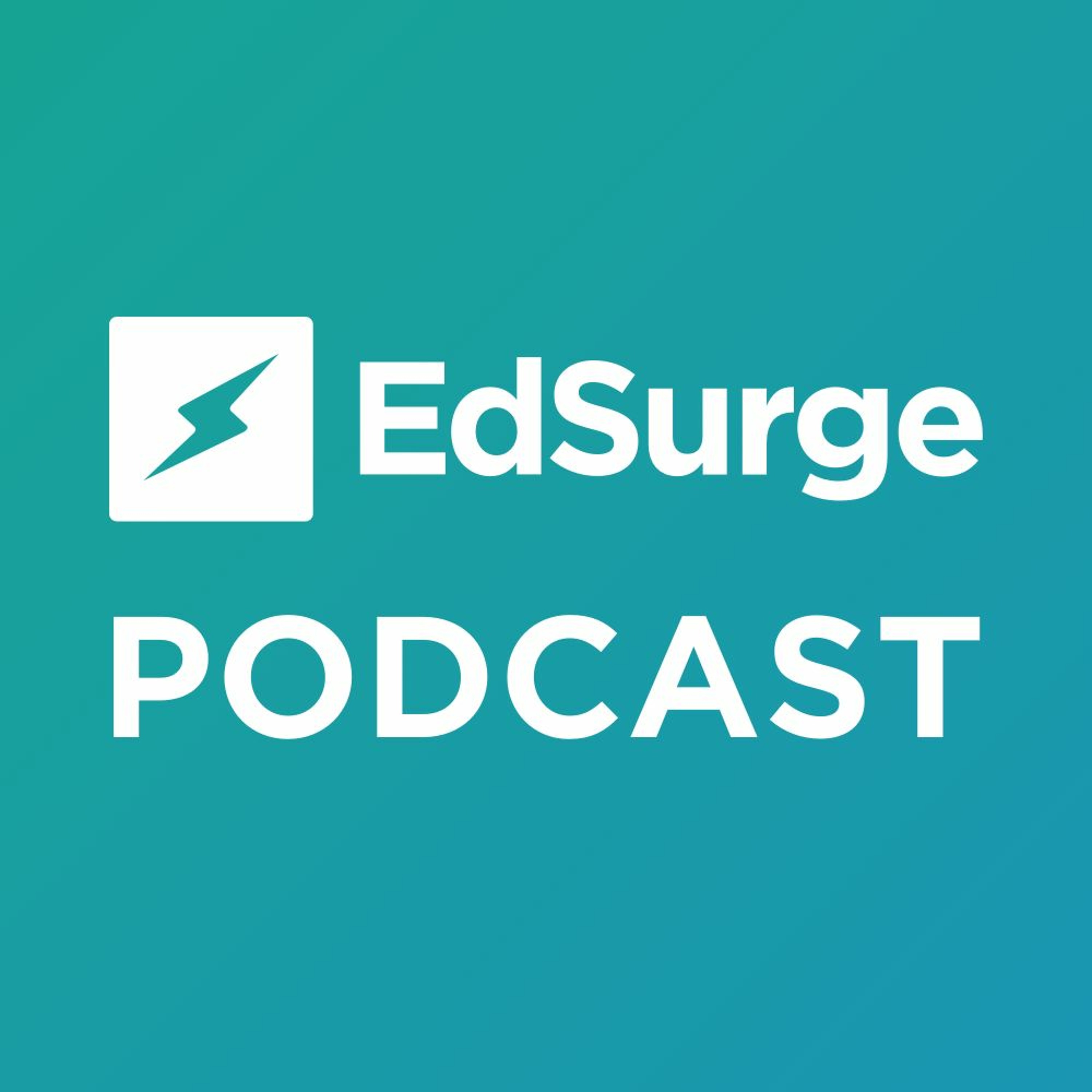
How Goddard's New President Hopes to Save the Struggling Experimental College
Bernard Bull has long been a champion of experimental higher ed models. And one of his biggest inspirations throughout his career has been a tiny college in Vermont called Goddard College. And one day Bull got offered a dream job as president of Goddard. But there was one catch. As he went through the interview process, he found out the famed college is broke, and in danger of closing. We asked Bull how he hopes to turn things around.
34:3714/05/2019
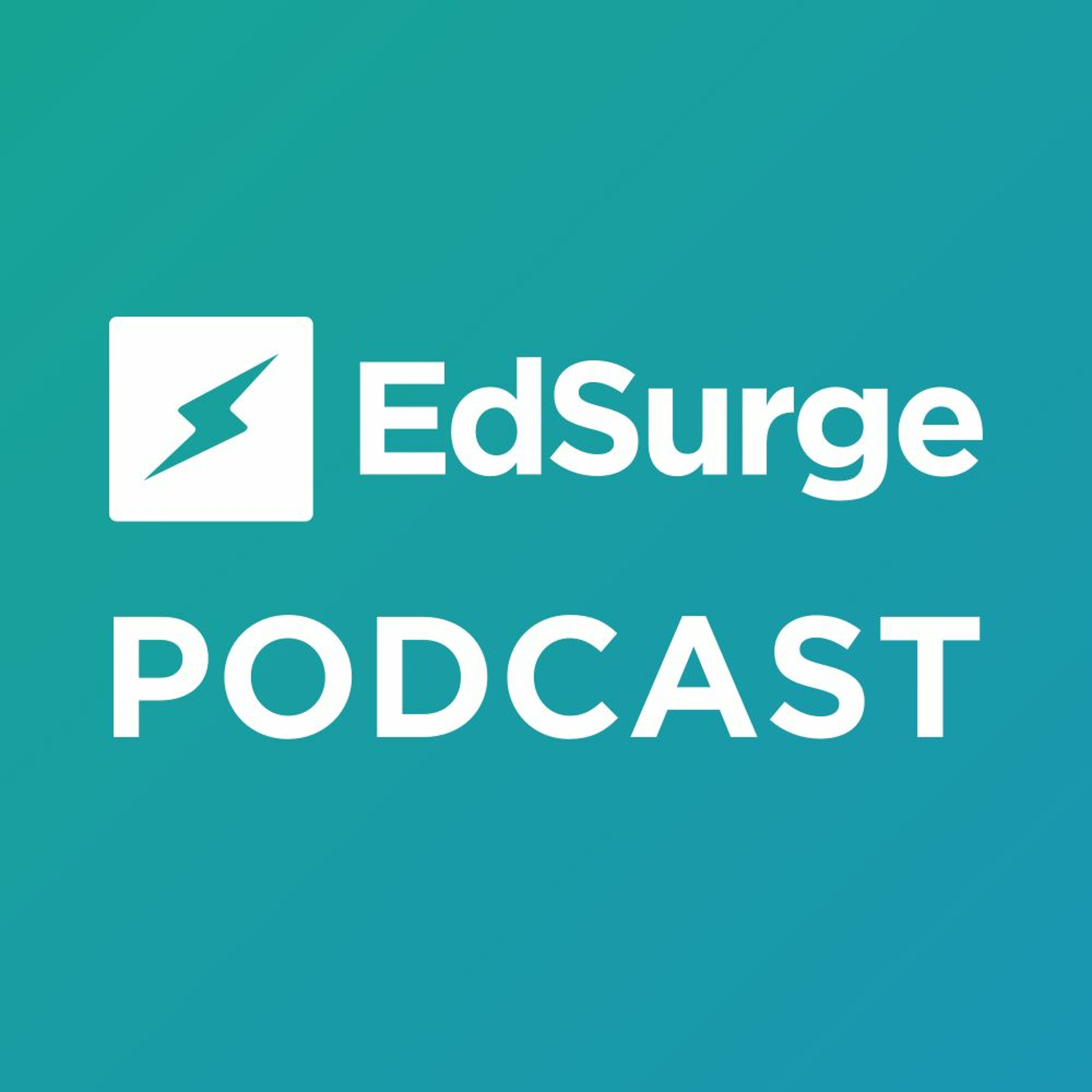
Why Social-Emotional Learning Is Suddenly in the Spotlight
In the last few years, terms like “whole child” and “social-emotional learning” have become buzzwords. But behind the buzzwords are programs, often led and managed by schools, that take into account all the different things a child needs to be able to learn and grow, even if those things reach outside the traditional roles of a school. EdSurge sat down with Christina Cipriano, the director of research at the Yale Center for Emotional Intelligence and a research scientist at the Child Study Center at the Yale School of Medicine.
22:4907/05/2019
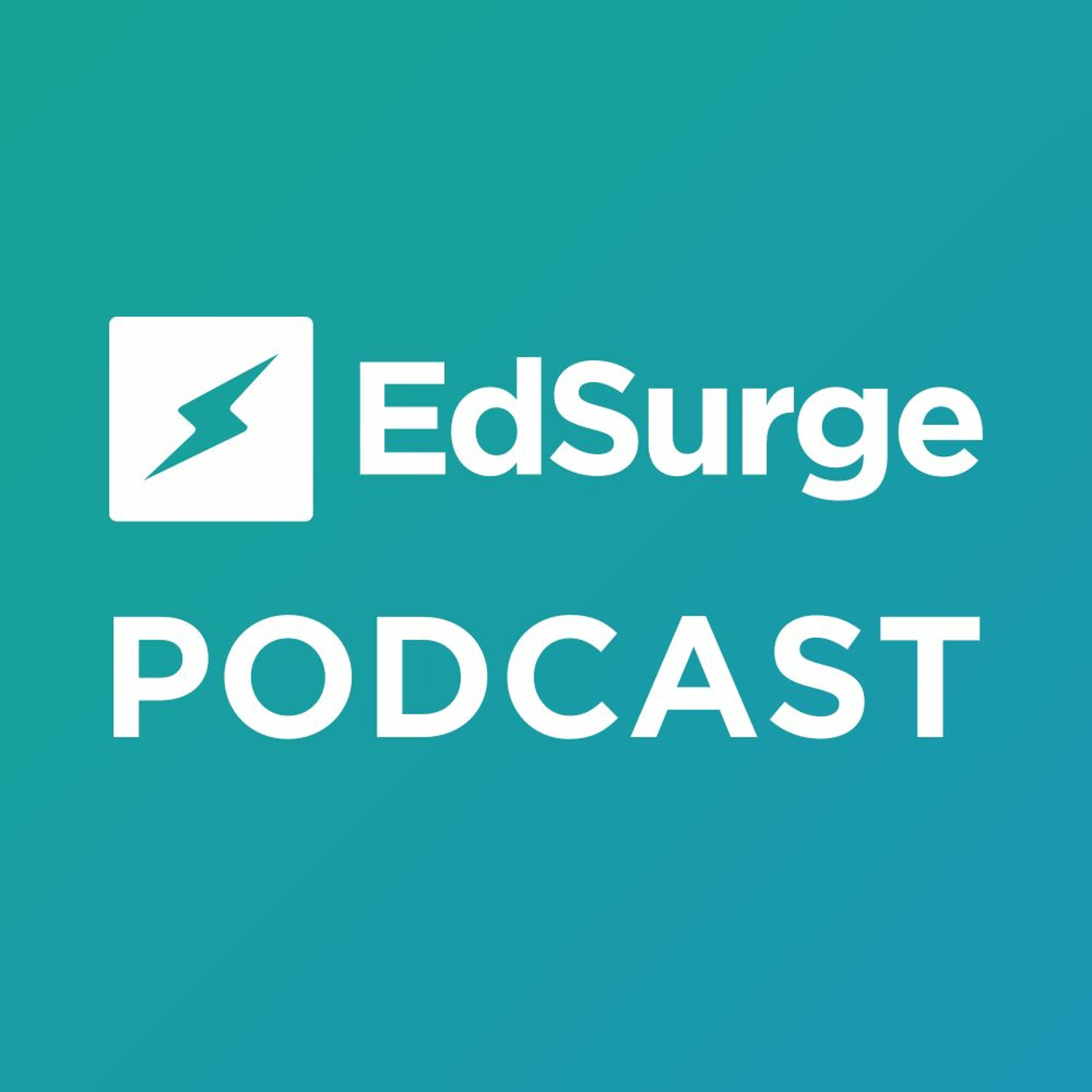
Adult Students Have Moved Into the Mainstream. How Can Colleges Adjust?
Hollywood comedies like last year's Life of the Party portray adult students as fish out of water in higher education. But the reality is that these students are in the majority these days, often taking online programs or new offerings designed to serve them. We talk with Marie Cini, president of the Council for Adult and Experiential Learning, a group working to support programs for these so-called nontraditional students, the real-life versions of the character played by Melissa McCarthy in Life of the Party.
24:5930/04/2019
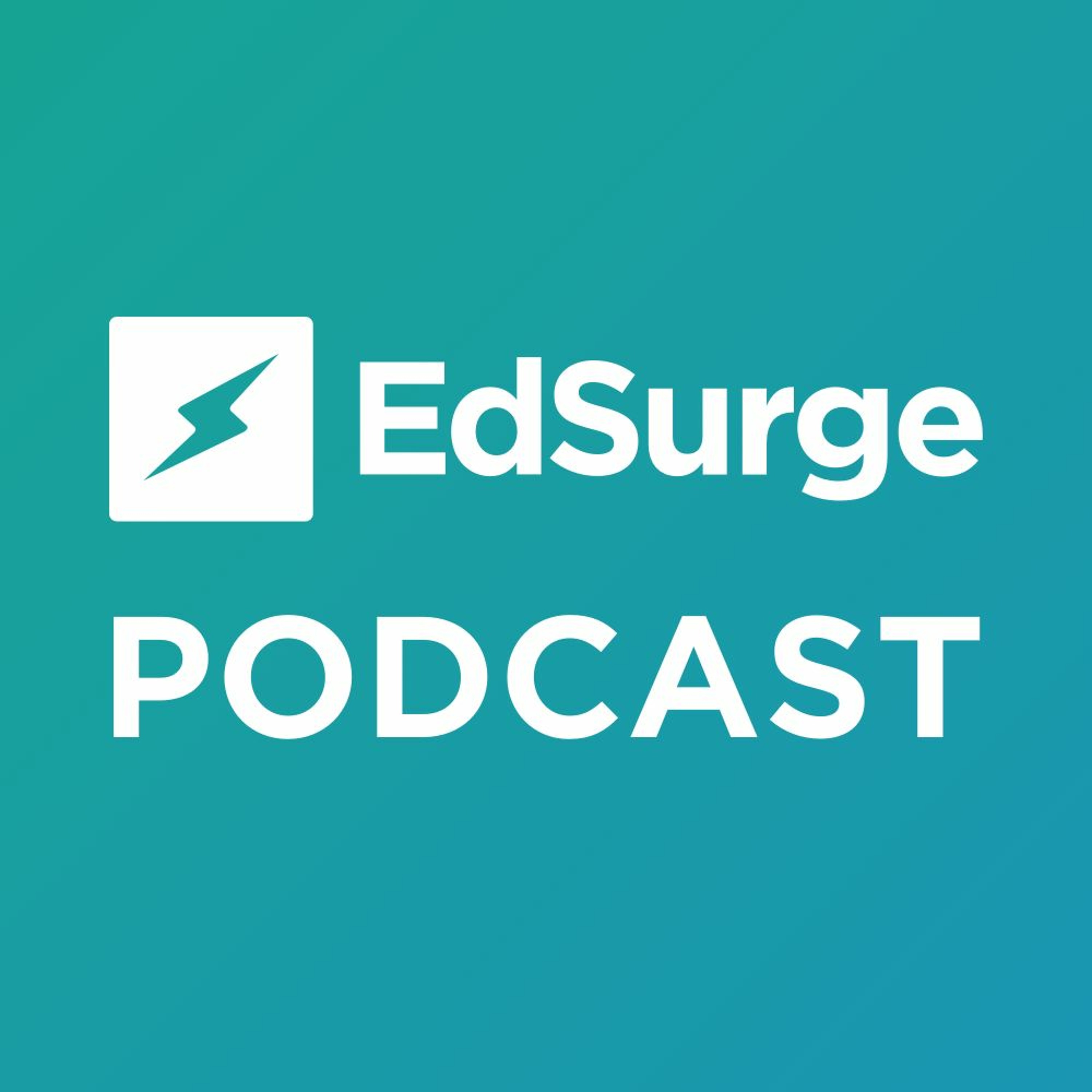
Teachable Moments Part 4: What We Learn When We Teach
Teaching isn’t a simple one-way exchange. Often there are lessons to be learned from the very act of teaching, whether it’s an instructor finding new ways to reach—or not reach—students, to watching students grow before your eyes to discovering what makes collaborative learning so successful. Those are some of the examples educators shared with us on this week’s podcast.
14:5223/04/2019
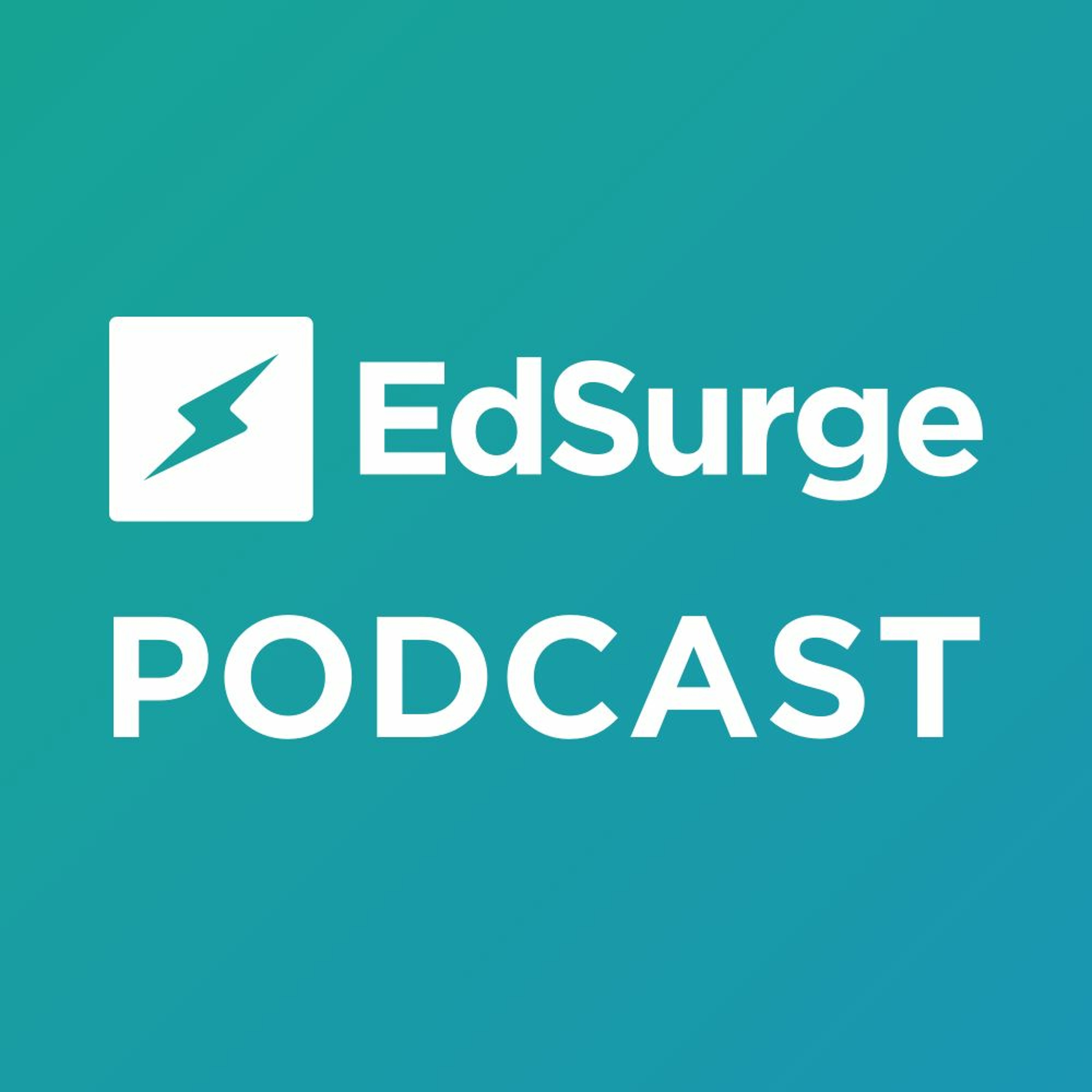
The Fast-Changing and Competitive World of Grad Degrees
There’s a boom in the number of grad degrees and certificates being awarded these days, especially as more colleges have moved to offer degrees online. And these degrees are now offered in different shapes and sizes, and in some cases at the faction of the price of in-person degrees. To help understand this shifting landscape, EdSurge sat down with Sean Gallagher, who has written a book on the future of university credentials, and runs a center at Northeastern University that tracks this area.
20:5516/04/2019

EXTRA: Is The SAT Secure? What the College Board Is Doing to Respond to the Admissions Scandal
The college admissions scandal, which the FBI codenamed Varsity Blues, has raised questions about the fairness and validity of the admissions process as a whole, and specifically about whether the SAT is as secure as it should be. EdSurge sat down with Jeremy Singer, president of the College Board, the group that administers the SAT, to ask how the group is responding, and what it felt like to get the call that the test had been gamed in this way.
30:0311/04/2019
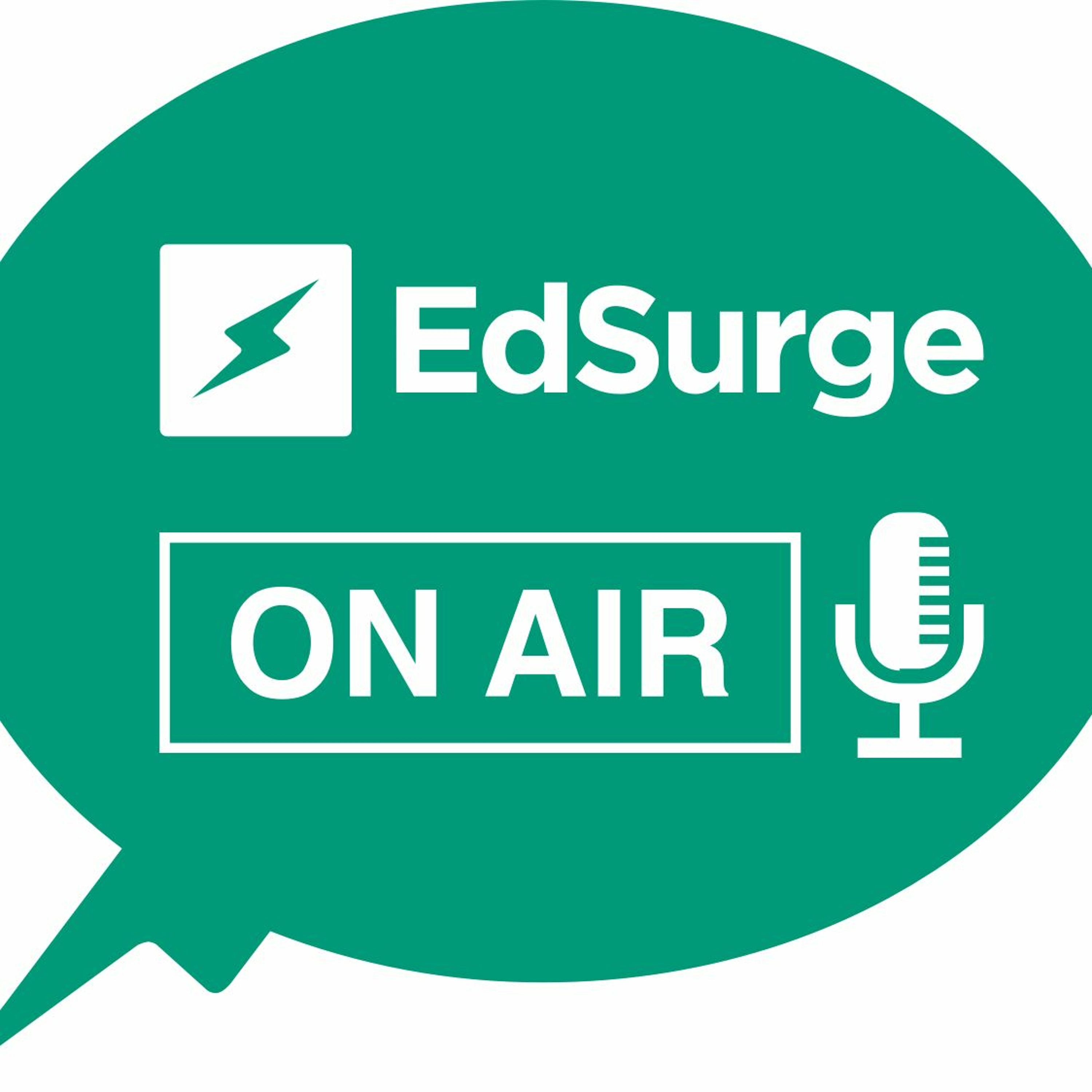
Teachable Moments Part 3: Reaching Students Through Technology
It’s easy to think of the ways that technology can make humans feel alienated or alone. But technology has also brought people—and teachers and students—together in new ways that have inspired learning.
This is the third episode of a four part series about why teachers teach called “Teachable Moments.” We'll hear directly from educators who attended the EdSurge Fusion conference last fall about the challenges they face, and what brings them joy in teaching.
19:2509/04/2019





